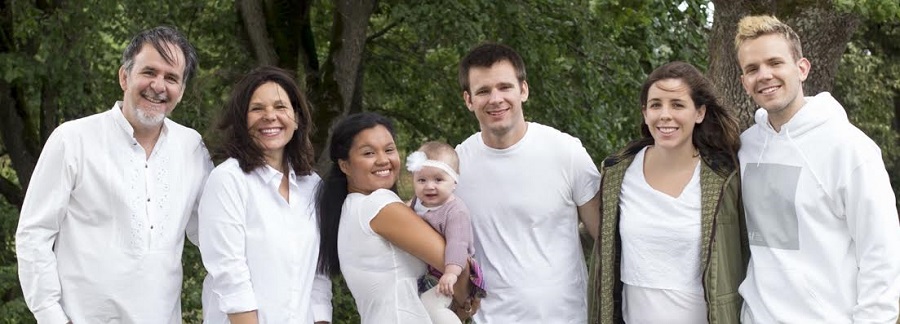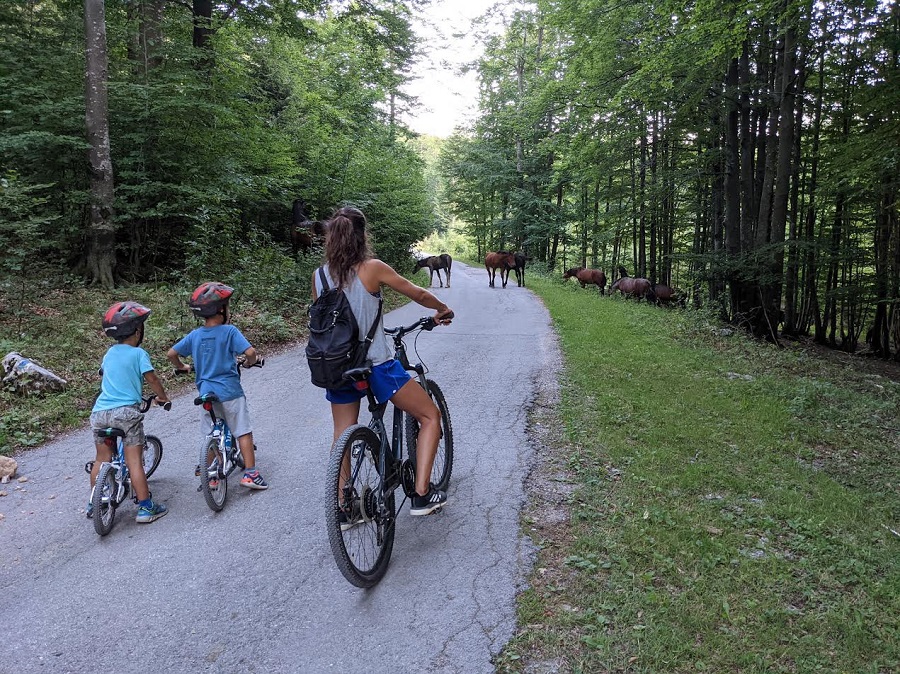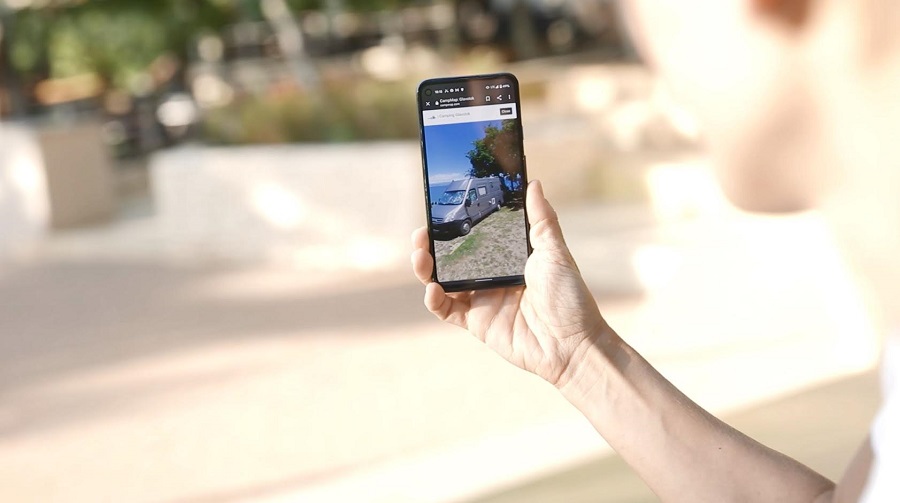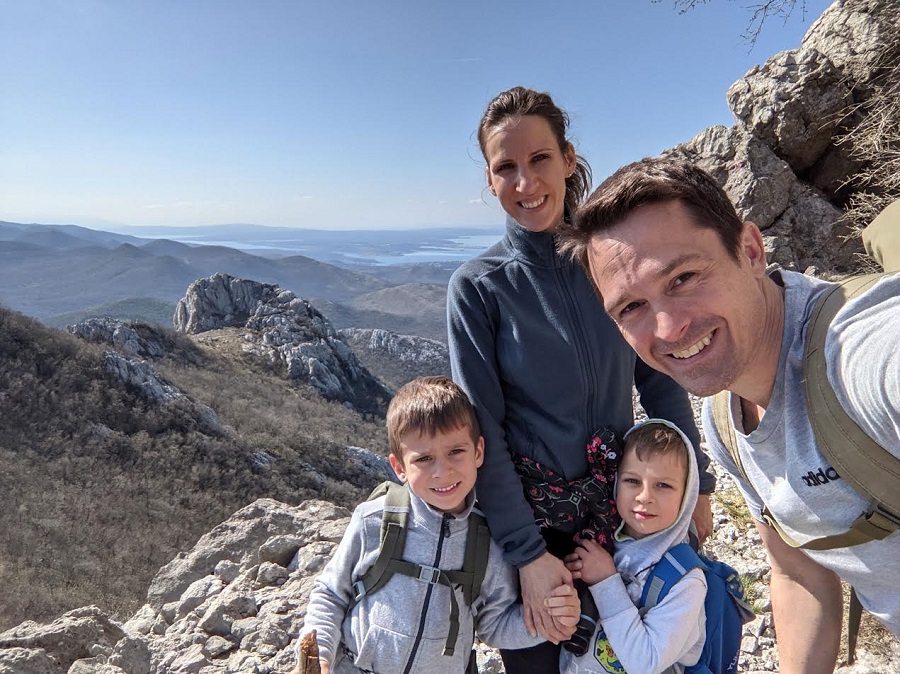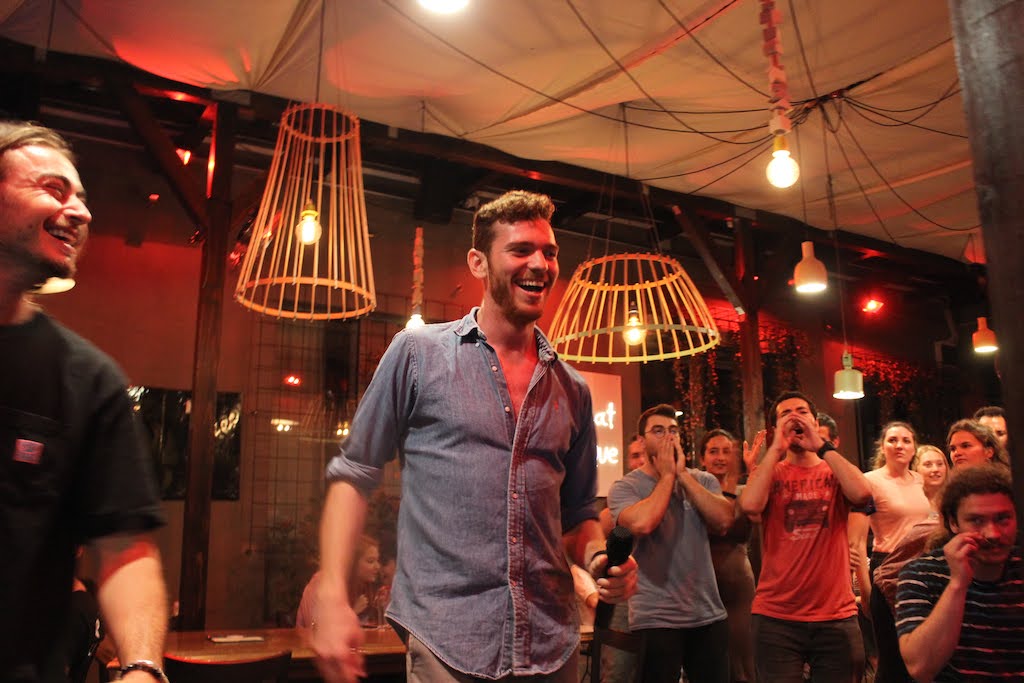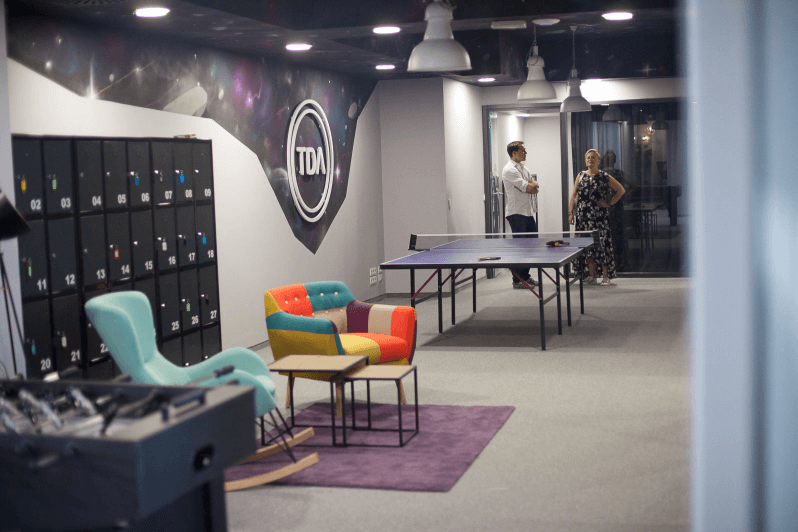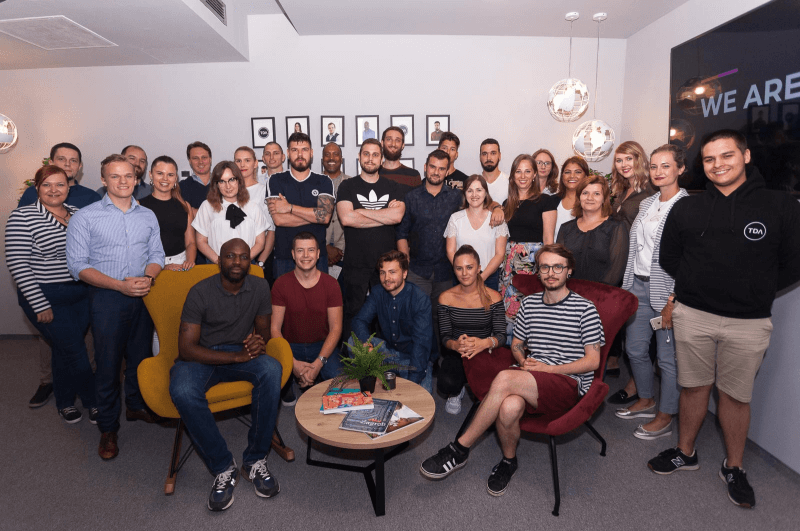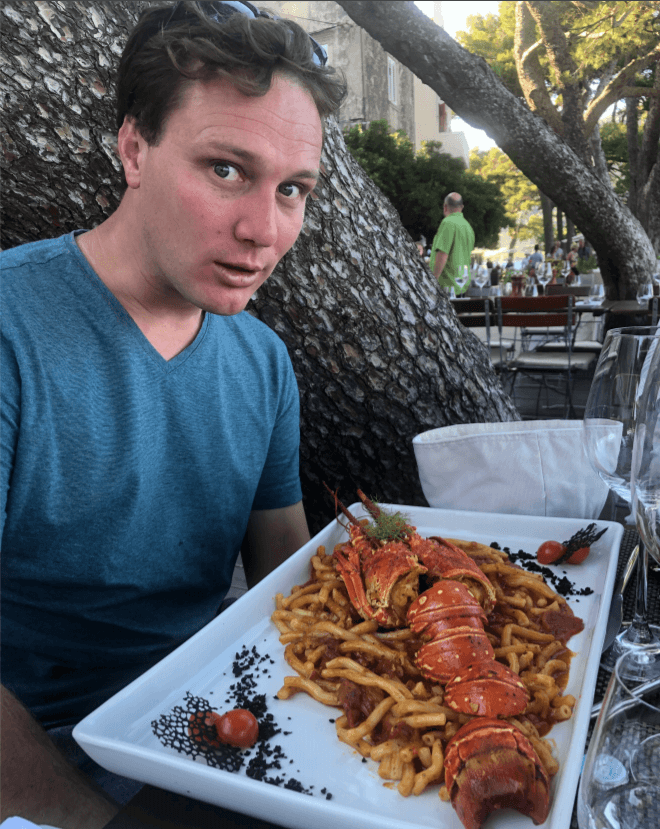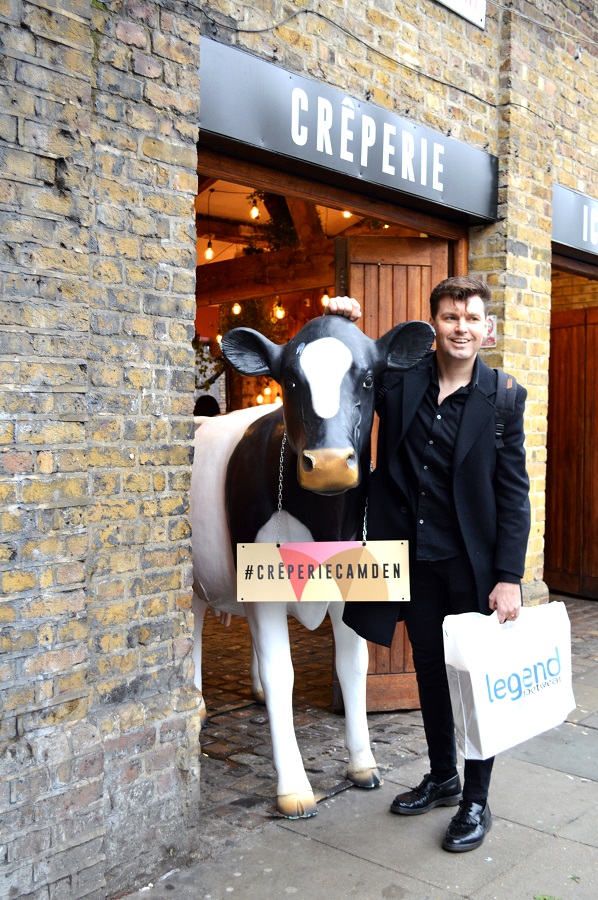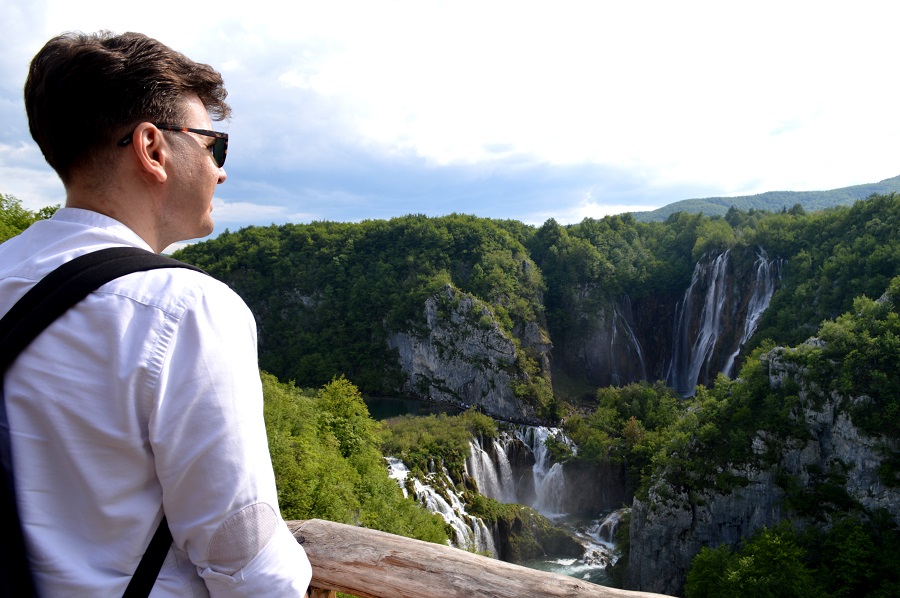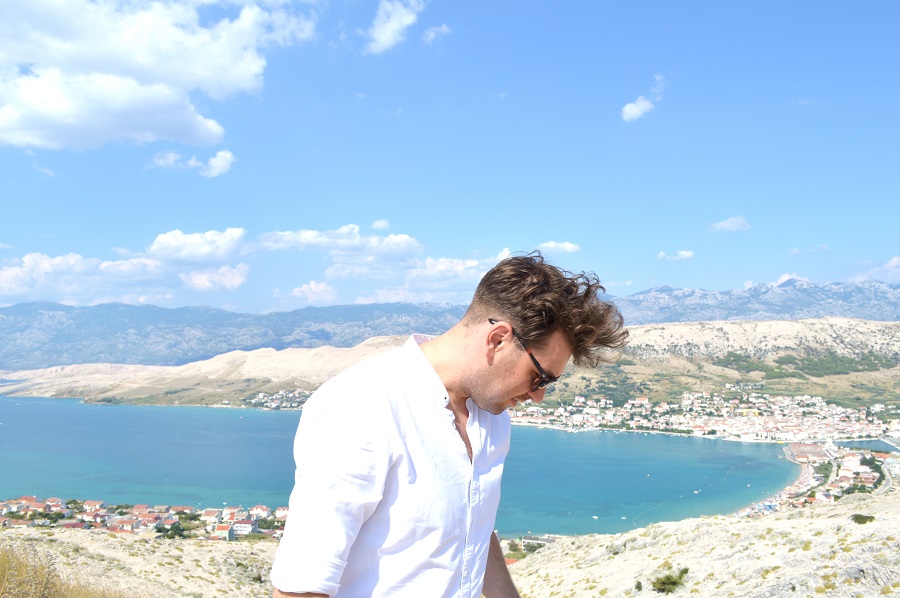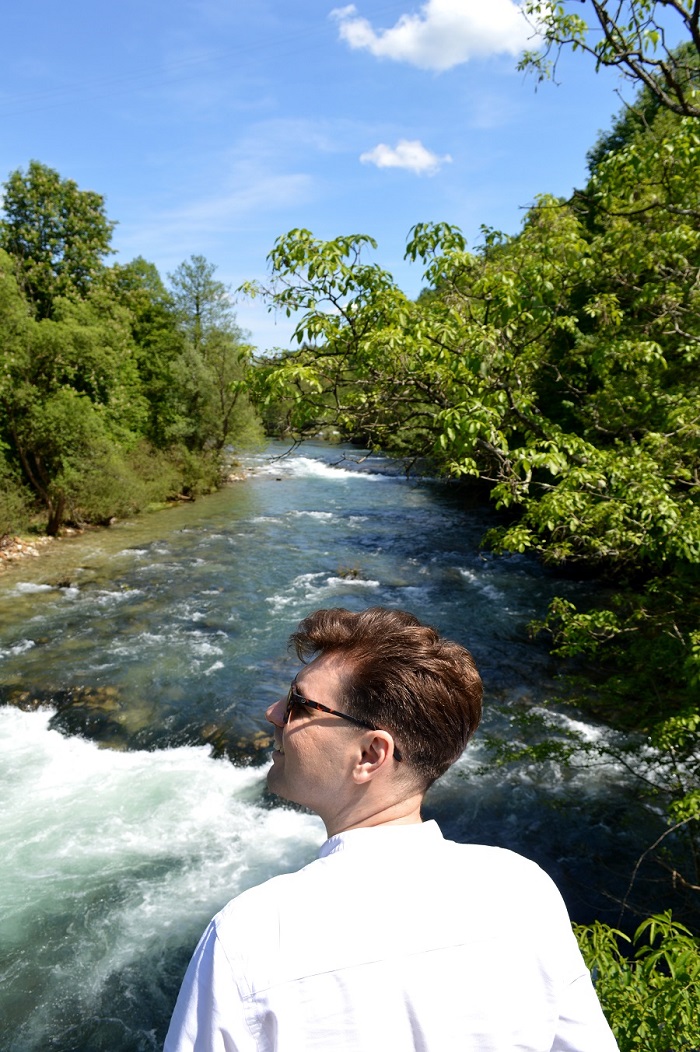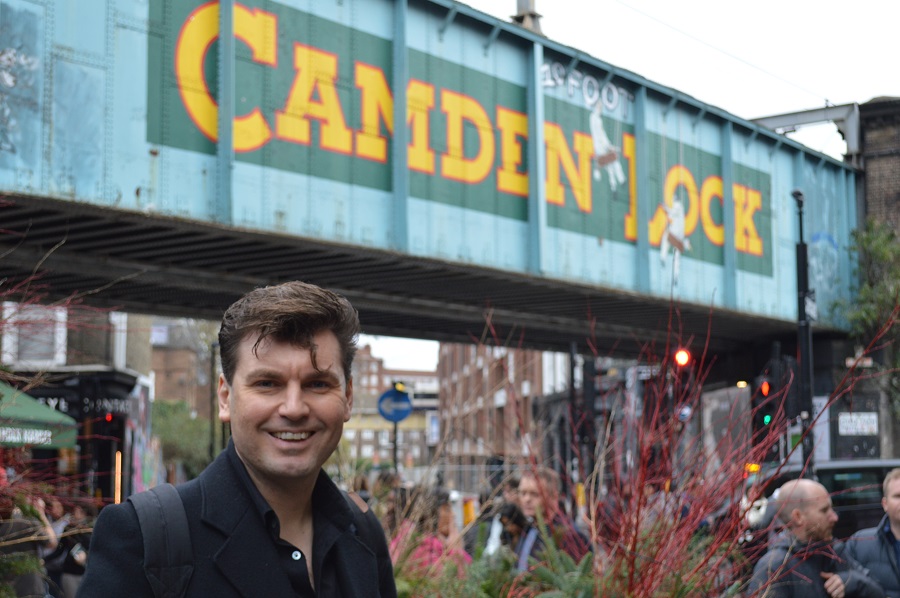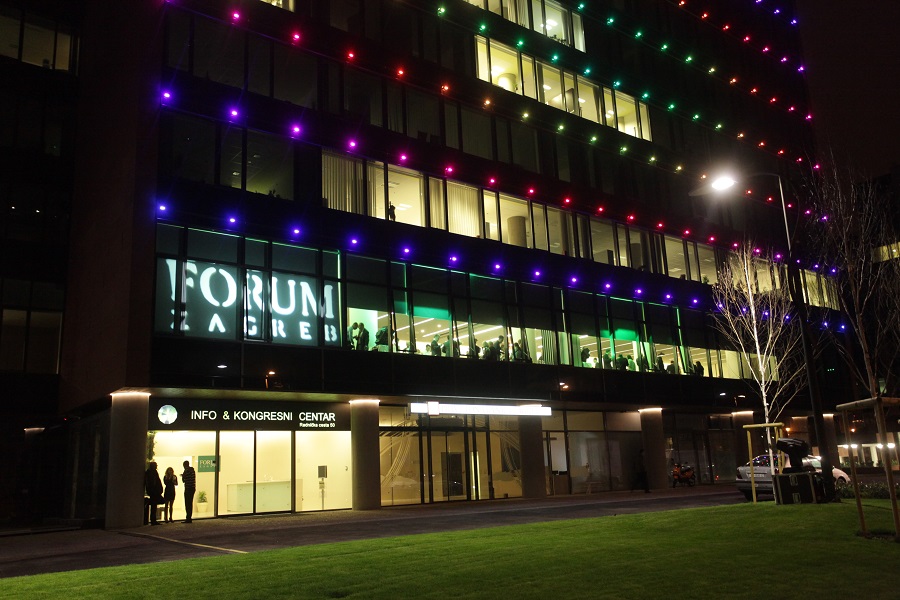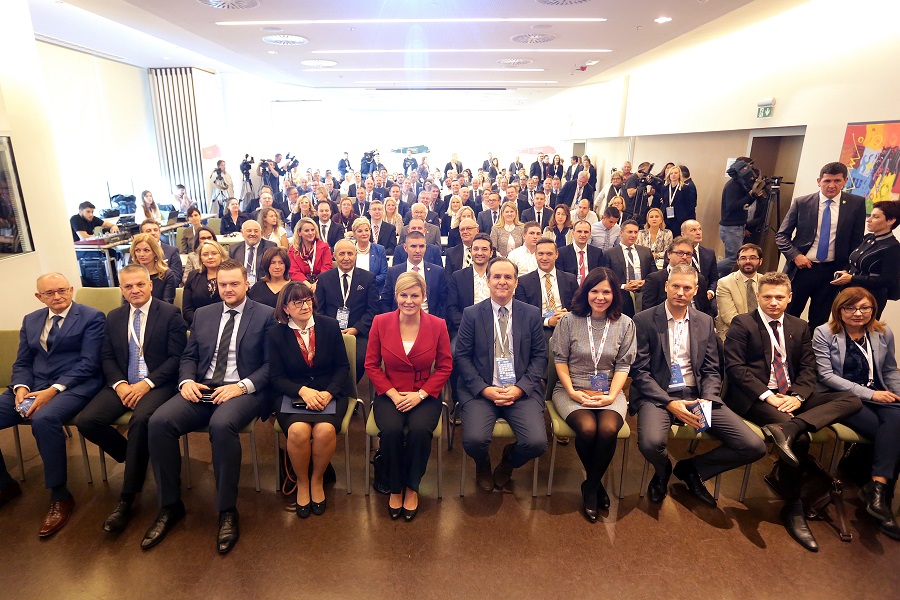Croatia's Foreign Entrepreneurs: Simon Neal, from Aberdeen to Rijeka
October 7, 2021 - Continuing our look at the foreign entrepreneurs trying to succeed in Croatia as so many are emigrating, meet Simon Neal who swapped Aberdeen to Rijeka.
Intro
My name is Simon Neal, I am from a small town close to Aberdeen in Scotland. I studied Geology at University and worked for 15 years in the Oil and Gas industry in many places around the world before moving to Croatia in 2013.
After spending a few years in Croatia and enjoying holidays in the campsites here (and struggling to find the information I wanted to see) and I had the idea to create CampMap (https://campmap.com/).A digital interactive map for campsites that makes camping simple for guests and camp managers, it’s like Google Maps and Booking.com for camping.
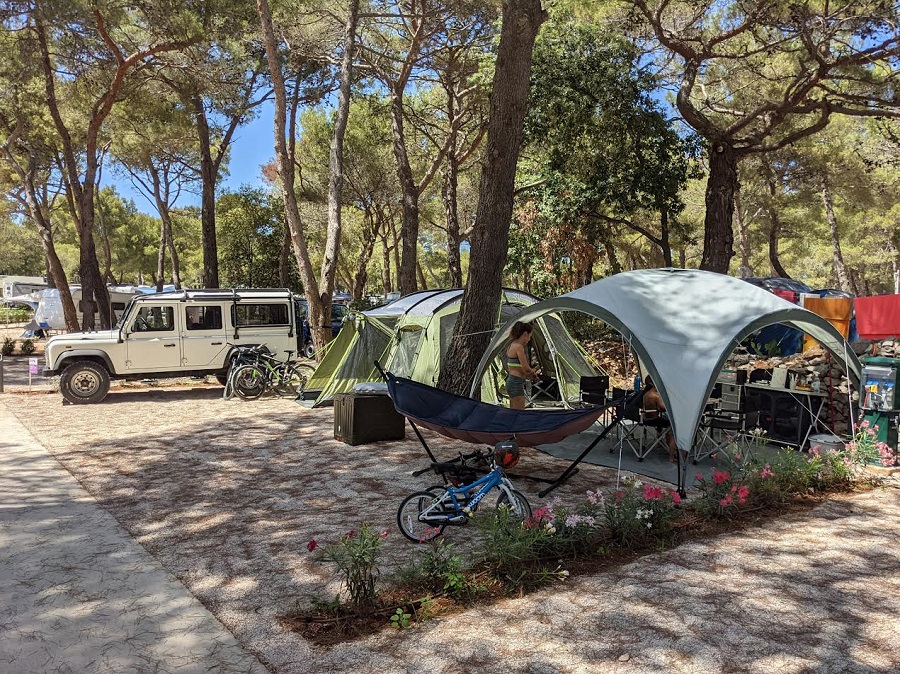
First and foremost, why Croatia and what is it you do?
In 2009 whilst on holiday in Croatia I met my wife Jelena who is from Rijeka. After being together for several years and living in Jordan and the UK we decided to relocate to Croatia for a new adventure.
At the time most of my work was done remotely (an early digital nomad) with quite a bit of international travel. So being in Croatia also allowed Jelena to be close to friends and family when I was away, it then quickly became my new home and a place where I planned to stay for good.
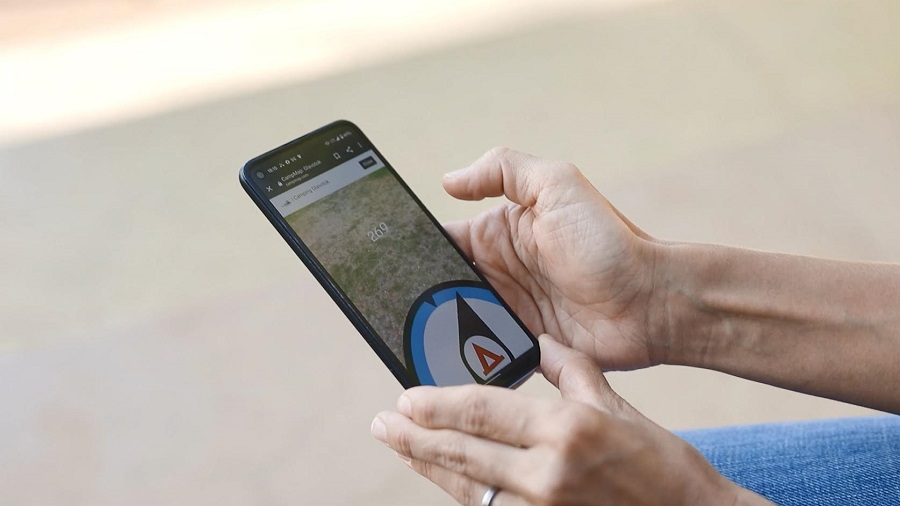
Tell us about some of the differences of your expectations of running a business in Croatia and the reality.
Before setting up a business in Croatia, I had run a business in the UK for a few years, so I had a good understanding of what is required there. In Croatia the reality was a bit different, you are a lot more reliant on other people to get things done e.g. lawyer, accountant, notary, government department. It takes time to get used to that but eventually you understand to the way things need to work and just go with it.
In terms of doing business with people, the culture is very different and something that was completely new to me. For one, I don’t drink coffee, much to my wife’s frustration and I am not a very conversational person so business meetings with potential customers was something that did not come naturally to me.
What (if any) bureaucratical issues have you encountered and how did you overcome them (i.e. any advice to the would-be entrepreneur?)
I’ve opened two companies in Croatia, the first in 2013 and the second in 2019 and there was a huge improvement in the process. My latest company was setup in less than a week including a working bank account and for only minimal costs and paperwork, amazing.
However, there are still plenty of barriers in place that slow down business and make life complicated, it is like there is no trust in the system which is a real shame. My advice is to find a good accountant who is familiar with the type of business you do; you will need them often. And a notary office that is close to where you work because you will need to visit them more than you think.
How is your product or business perceived in the Croatian market?
We are a start-up with a new product trying to help a well-established and successful business community in Croatia, camping. Even though we launched this year, with all the uncertainty around, the perception of the product has been amazing. This is a good sign and shows we are solving some real pain points for camping businesses and guests, but we have a lot of work to do yet.
What were the opinions of your friends and community, were they supportive of your idea, or…?
It’s always a risk when you open a new business, but I was careful to test the idea and secure funding from an investor before committing full time to CampMap, so overall the support and opinions were very positive. Most people who know me also understand that I like to create or build things so creating a start-up is a real fit with my character. Our product is also based heavily on my professional experience which gives people confidence that’s not a totally crazy idea.
What are some of the greatest challenges you have faced in business in Croatia?
With CampMap there have been no big challenges so far, there is the usual bureaucracy, although as I mentioned this is improving. However, a major challenge in the future is how we can grow this business outside of Croatia, the only solution to that now is to move the business legal ownership to another country. This is a real shame but the framework for having investors and customers in Europe or Globally simply doesn’t exist or is too complicated to be practical for a company of our size.
If you knew then, what you know now, would you have come?
The reason for my move to Croatia was not as an entrepreneur but the opportunities in Croatia brought the entrepreneur in me to the surface, so either way, yes, I would definitely have moved to Croatia knowing what I know now.
What are 3 things you love about Croatia?
The first thing is the physical geography, the sea, islands, forests and mountains this is very familiar to me from growing up in Scotland. I love spending time outdoors with my family or competing in trail races in the mountains.
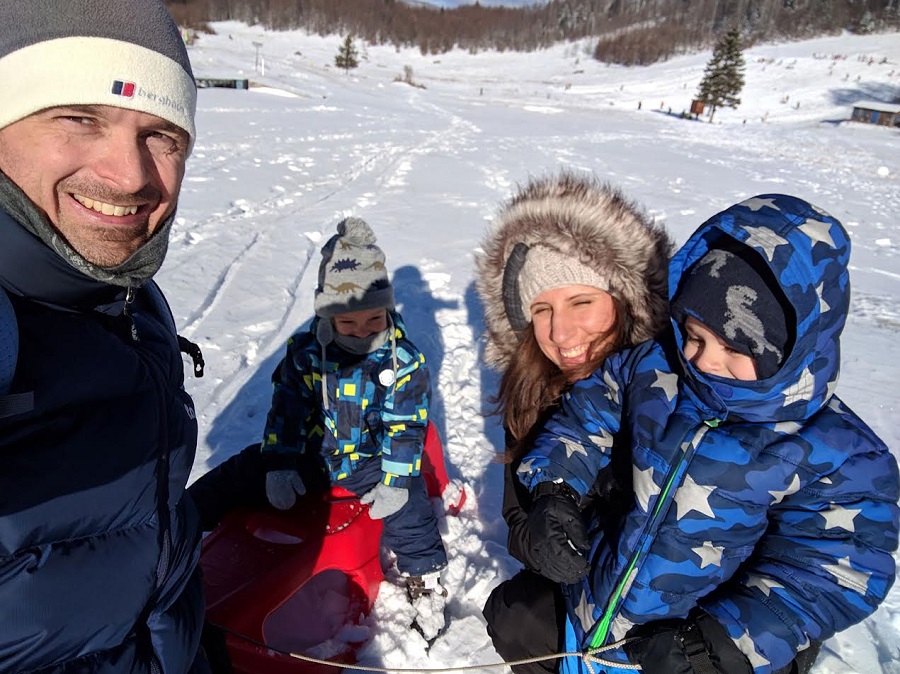
After that it’s the climate, especially here in Rijeka, where the summer is warm and you can enjoy swimming in the sea and spending lots of time outdoors. But the winter is also cold, wet with snow and rain (something that is very familiar to me). It creates a real change in seasons which is sometimes missed in some other countries with warmer climates.
Finally, it has to be the culture which is summarised best by the food and the people, both are amazing. There is nothing better than getting together with family or friends for a big meal or BBQ in the garden.
What are 3 things you would like to see improved in the business climate in Croatia?
If I had been asked this question a few years ago then some of my answers would have been solved already which is a good sign that things are getting better. For what’s left to improve I would say:
Move all possible business services and reporting to be online and digital.
Delegate responsibility of a company to the director completely, removing unnecessary checks and processes.
Copy and implement the simple and flexible investment structure and framework for limited companies (d.o.o.) from countries like the UK and US.
How is it working with Croatians in terms of a business mentality?
My experience has been very positive, certainly within the travel and tourism industry in which we are working. Almost everyone has been open to talk and look at our products and thankfully many of them have been interested to do further business with us.
Advice for foreign entrepreneurs thinking of coming to Croatia?
Do your homework and read some of the sites online about doing business in Croatia, many of the government websites are now also available in English and some steps can be done online.
Don’t be afraid to come to Croatia, especially from within the EU, but make sure you know what it takes to get started. You cannot do it on your own, you are going to need people to help you especially a notary and it would be a good idea to find an accountant before you open the business. Be prepared to wait in queues and sign plenty of documents.
Apart from that, the work life balance and lifestyle in Croatia is great, healthcare, schooling, and nursery for young children are also excellent. If you have a good idea and want an adventure, there are not many better places to be an entrepreneur in Europe than Croatia. There is also a great VC based in Zagreb called Fil Rouge Capital. They are helping develop the start-up ecosystem in Croatia and are always looking for bold entrepreneurs with a big idea.
To learn more about the foreign entrepreneurs trying to make it in The Beautiful Croatia, check out the heroes we have covered already.
Are you a foreign entrepreneur trying to make it work in Croatia and would like to promote your story? Contact us on This email address is being protected from spambots. You need JavaScript enabled to view it.
Croatia's Foreign Entrepreneurs: Ofek Aviv, from Tel Aviv to Zagreb
March 24, 2021 - Continuing our look at the foreign entrepreneurs trying to succeed in Croatia as so many are emigrating, meet Ofek Aviv who swapped Tel Aviv for Zagreb.
1. First and foremost, why Croatia, and what is it you do?
My name is Ofek Aviv, and I moved to Croatia almost 2 years ago.
My sister was the first one in the family to discover Croatia, she came 5 years ago to study medicine in Zagreb.
I only came to visit her in the summer of 2019 and planned to stay for one week, but I fell in love with Croatia and discovered business opportunities so I decided to stay.
I am the owner and founder of Bustan bar, a cultural bar in the city center, on Varsavska 8, just across Cvjetni Trg.
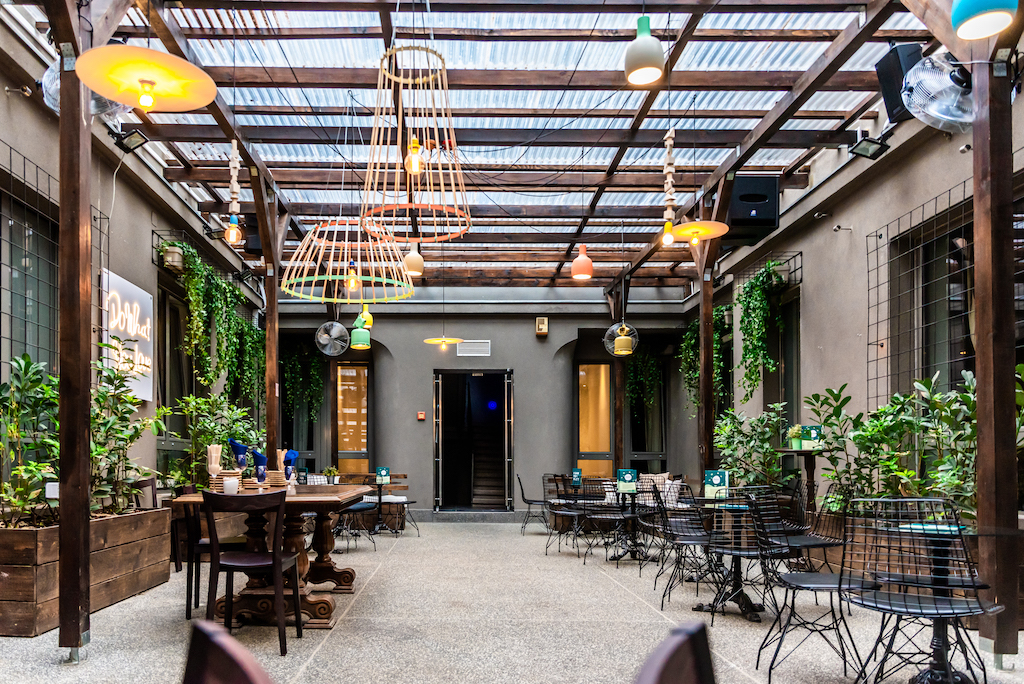
Bustan, you can tell just from the Arabic name, tries to bring some different energy and thinking to the local bar scene, a mix of local and international creativity and talent.
2. Tell us about some of the differences of your expectations of running a business in Croatia and the reality
First of all, the bar opened in the middle of the corona crisis, which is just by itself, a very different experience, in any country these days.
Especially for Croatia, I would say, is how strong the culture affects the business, for the good and for the bad.
In Israel, we are a young country, a mix of Jewish from across the world, so you don't have a particular culture or habits.

Here, there is a strong culture of coffee, smoking in bars, and a more conservative business mindset.
For example, we tried and keep trying to make connections with the local stores nearby, something that doesn't cost them and just giving them an added value, and still, many of them that are not used to collaboration, not fully understanding the benefits.
3. What (if any) bureaucratical issues have you encountered and how did you overcome them (i.e. any advice to the would-be entrepreneur?)
Oh well, many of them.
The main issue for me, and from what I hear, also for locals, is that the law in many fields is not written clearly, leaving much room for interpretation.
So in almost every project you can ask two different lawyers and hear two different answers, which I still haven't gotten used to.
4. How is your product or business perceived in the Croatian market?
In the very few months that we are open, and despite the COVID-19 situation and restrictions, I can happily say that the Croatian local scene is very collaborative and we are getting a lot of positive feedback.
I think one of the main reasons is because I am not only trying to promote my Israeli culture, I am focusing more on culture and creativity in general, if you have a passion, we can collaborate.
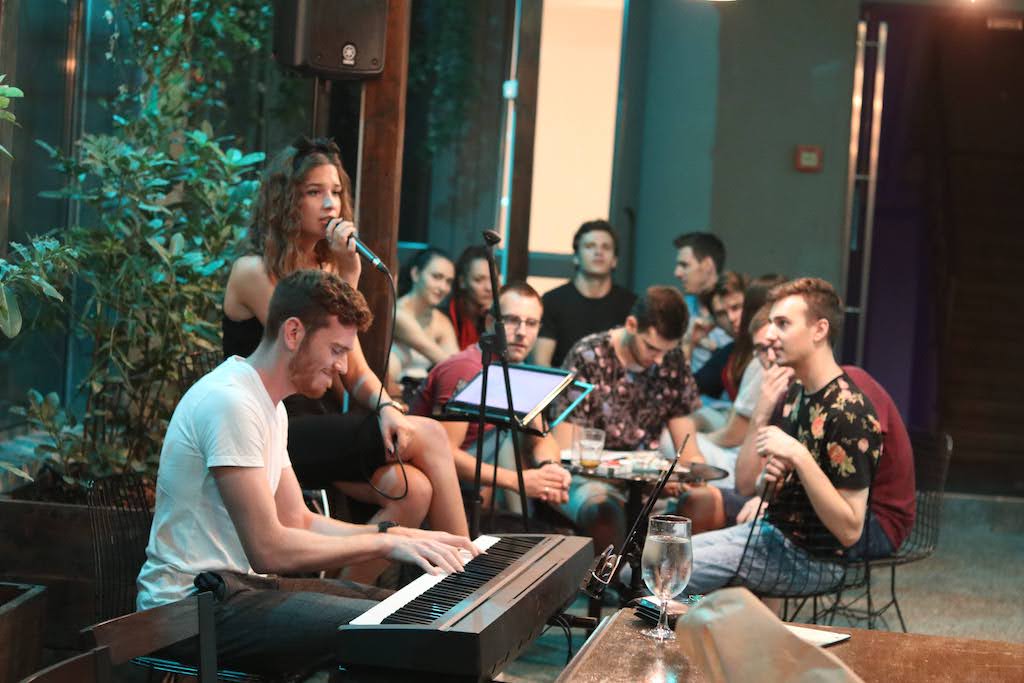
It brought to the bar many local talents that we have promoted in Art Bazar, live music shows, and even a teacher that reads stories for kids on Sunday morning.
5. What were the opinions of your friends and community, were they supportive of your idea, or…?
I am a young man, so my friends were very happy of course that I have a bar, but also on a more serious note, they liked the idea and they are joining most of the events, so I had a lot of support and that's what keeps me doing what I love.
6. What are some of the greatest challenges you have faced in business in Croatia?
Mostly cultural, the pace of life, pace of work, communication with my team and with suppliers, a lot of things are different.
And of course, bureaucracy.
7. If you knew then, what you know now, would you have come?
I would, definitely! I would just maybe wait a year or two, living here and learning the lifestyle, before I would go full power and own a business.
8. What are 3 things you love about Croatia?
- The authenticity, Croatia still has that soul that many countries in Europe already lost.
- The people. If you have good intentions, the Croatians will open their heart for you and will not leave you until they know they did their best to help you. Of course, I had also some bad experiences, but as a whole, the Croatians are truly amazing!
- The landscape and beautiful nature
9. What are 3 things you would like to see improved in the business climate in Croatia?
- More cooperation and sharing of knowledge between businesses
- Transparency and efficiency from the government
- Reduction of taxes
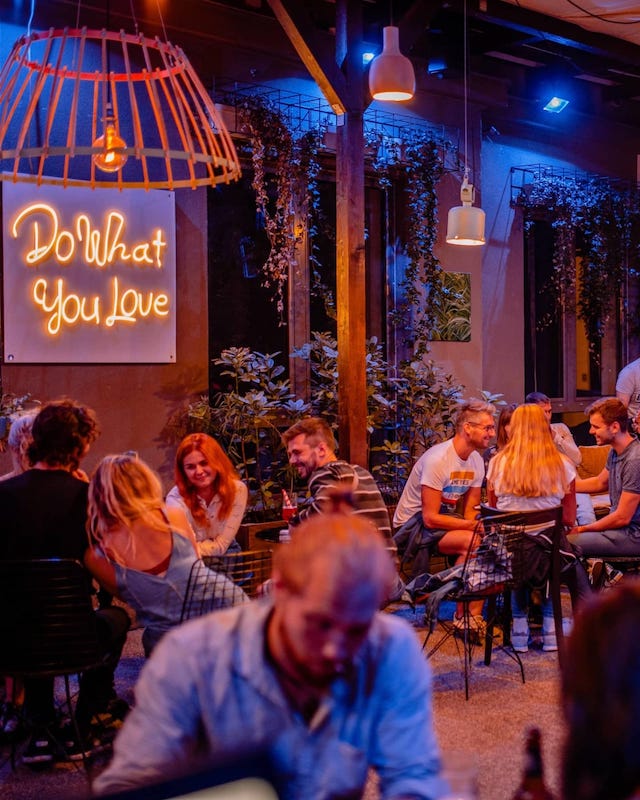
10. How is it working with Croatians in terms of a business mentality?
In general, it is great, the locals are full of ideas and there is a lot of talent. Like I mentioned before, you need to adjust to the pace and to other aspects, but it also depends on where you are coming from and what you are used to.
11. Advice for foreign entrepreneurs thinking of coming to Croatia?
My advice is to live here for at least a year before opening a business, to do proper research, to work with Croatian colleagues, and to try to establish a list of professionals that you can count on and trust.

Like my new lawyer told me recently: when you come to a new country, you need a good dentist and a good lawyer, the rest will be ok. And in the end, when you open your business, do it with your style, and believe in your way.
To learn more about the foreign entrepreneurs trying to make it in The Beautiful Croatia, check out the heroes we have covered already.
Are you a foreign entrepreneur trying to make it work in Croatia and would like to promote your story? Contact us on This email address is being protected from spambots. You need JavaScript enabled to view it.
5 Years a Foreign Entrepreneur in Croatia: The Good, Bad & Ugly
January 27, 2020 - Life as a foreign entrepreneur in Croatia as so many local people are emigrating. Mirela Rus from Break Time reflects on the good, the bad, and the ugly of her first five years of doing business in Croatia.
About five years ago, at the Days of Small Boatbuilding at Le Meridien Lav in Podstrana, I met a very nice Romanian couple with a stand selling nautical jewellery which they made themselves. They explained that this was their new business, and they planned to make it work so well that it would support their new life in Croatia.
I thought they were nuts and gave them a maximum of six months before they headed back to Bucharest.

But far from struggling, Mirela Rus and partner Ionut flourished firstly online, then in Split and eventually in five cities in Croatia with their unique brand of nautical jewellery. Mirela was our first interview in our Foreign Entrepreneur in Croatia series two years later, and now she is back, a little older (though not much), a lot wiser, and with some great and honest reflections on the positive and negative experiences of five years of being a foreign entrepreneur in Croatia.
You are a foreign entrepreneur in Croatia for 5 years now, and you are still here! Tell us firstly what it is you do.
Well, in a nutshell, we are producing and selling (in our own shops) high-quality nautical-style artisan jewellery.
It is a family-run business, meaning that my partner, Ionut Copoiu, handcrafts the jewellery and I handle the marketing and sales part.
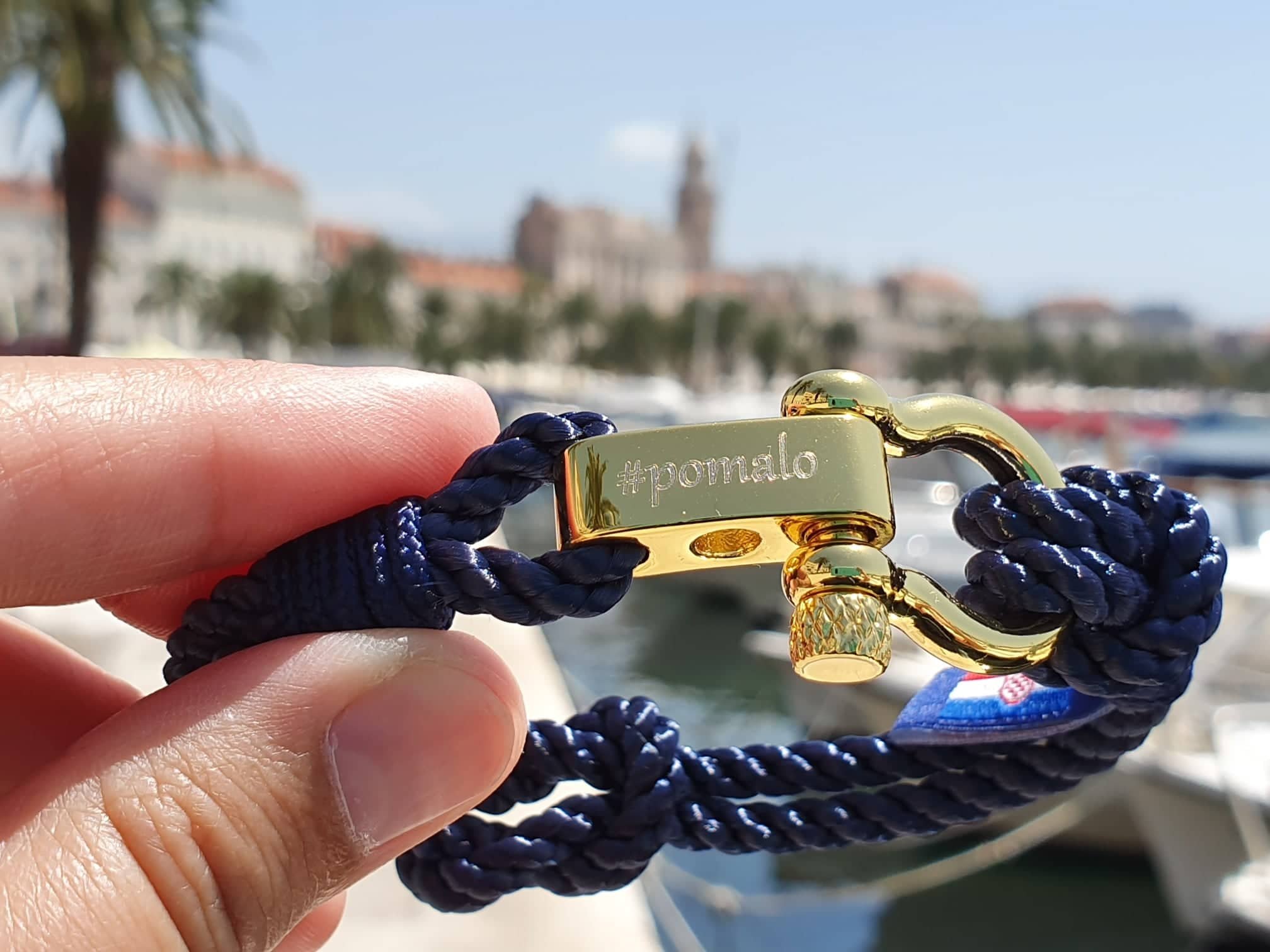
Looking back over the 5 years at the good, the bad and the ugly, let's start by asking if you are pleased at where you have ended up 5 years on?
I am pretty sure no entrepreneur is ever content with where he/she is at any given moment, since we all have a tendency to push ourselves to do more. The lesson learned in my first 40 years of life was that we should value quality of life more than business success and that was the main reason for our move here. We left Bucharest to escape stress and pollution and a generally hectic lifestyle. In that respect, I think we are pleased with our lives 5 years on. I still pinch myself every morning while looking out the window and having the sea in front of me. I know I could never ever live inland again.
How has the initial business model changed to what you have today?
We came to Croatia to build houses and we are running a handmade jewellery retail business instead. As they say, life is what happens while you’re busy making other plans
We planned our move to Croatia around the business model we had going in Bucharest, which was real estate development. Me and my partner made a great team, Ionut was building houses and apartments, I was promoting and selling them. We were actually always selling everything either off-plan or during construction, our motto was quality over quantity and it was going great.
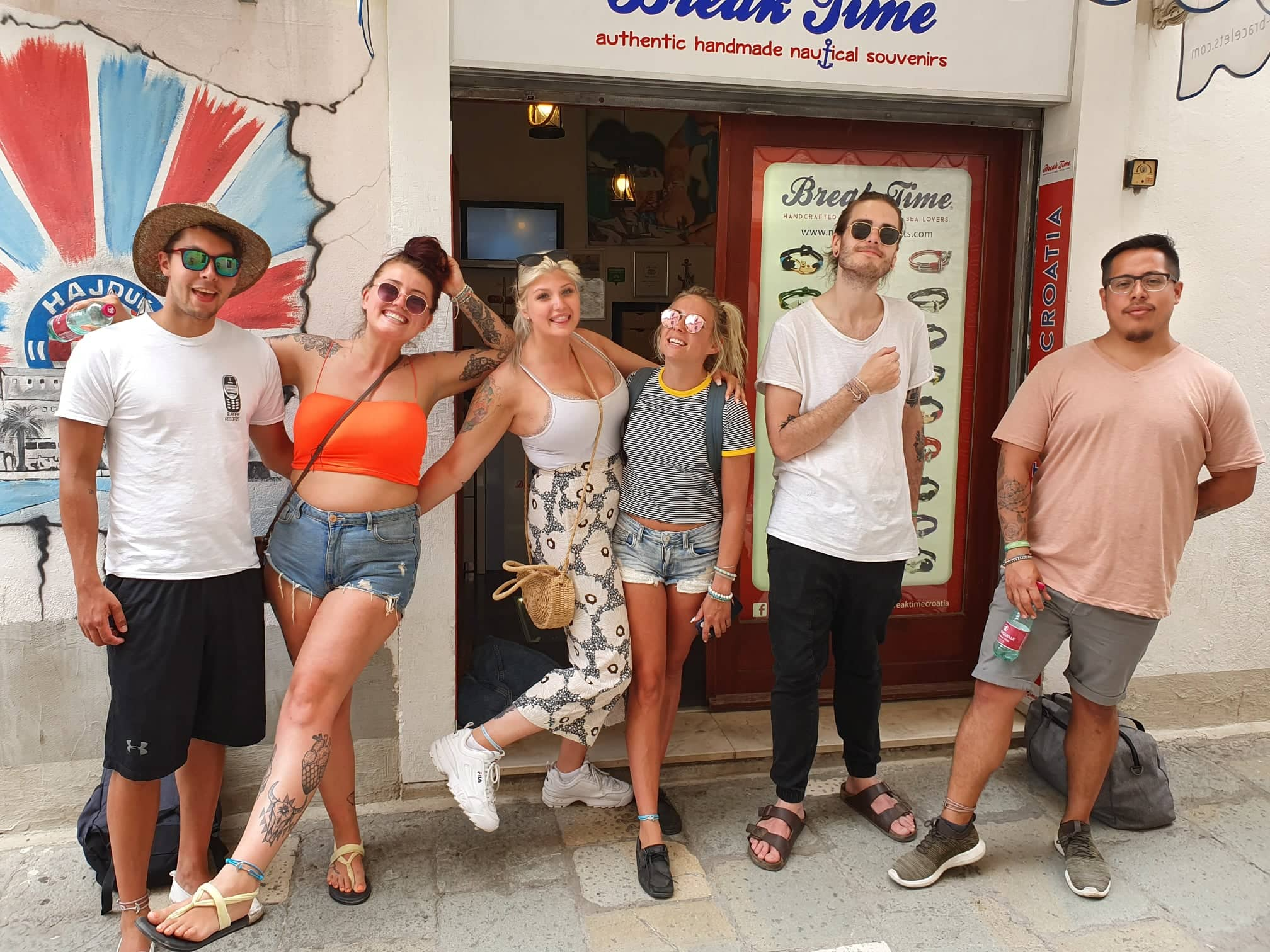
We planned our move for several years, scouting locations each summer and trying to understand how things work in our soon-to-be home country. In 2014 we created our Croatian company, we named it Break Time (we had other names higher on our list, but that was the first name accepted) and we finally decided on a land to buy and we contracted the services of a real estate agency that we thought was trustworthy, with the sole purpose of them making sure all papers are in order and help us obtain the building permits in the next 10-12 months, so that we would be able to start building the next year – since we planned to permanently move to Croatia in autumn 2015.
However, they did not disclose to us that a new law was basically halting constructions in many places around Croatia, until the UPU (Urbanistički plan uređenja) was finished – and the village where we bought the land was affected, too. We found this out in June 2015, from a local architect we contacted to help us get the building permits (since the agency we initially worked and that we also planned to hire for permits and site supervision, stopped replying to our messages). We were in disbelief and did not know what to do, since we were basically 3 months away from our move-date (by then, our Bucharest apartment was sold, our business there was almost finished, and we had no new plans for continuing it). We decided to move here anyway, and hope things would clear up soon enough.
Luckily for us, we are easily bored doing nothing, so – a month after we moved to Split – we decided to use Ionut’s hobby of making bracelets out of nautical items (which was helping him destress while running the construction business in Romania) and try to turn that into a – what we thought will be – a side-business to help us kill time and make some money while we wait for the land to be cleared for construction.
Little did we know that this will become our main business…actually the only business, since 5 years on, we still do not have the building permit (which we finally were allowed to apply for – and we did – in spring 2019).
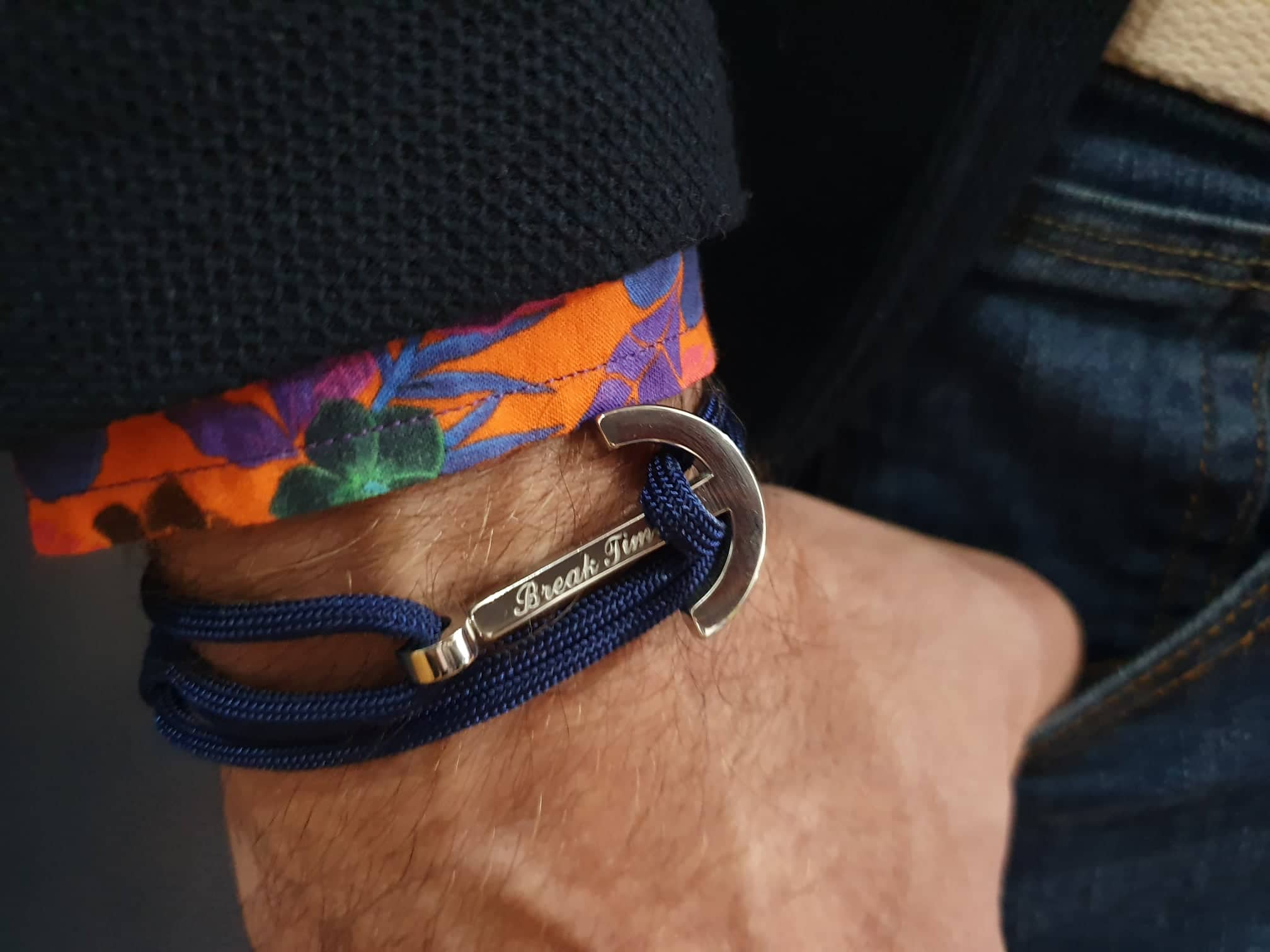
Let's start with the positives about your experience of being an entrepreneur here. Assuming there are any...
Of course, there are positives, otherwise we would not still be here. First of all, corruption is not that widespread as everyone comments it is. We come from a country where we actually had to deal with corruption absolutely each step of our way. We never had to bribe anyone in the 5 years we started our Croatian company. I put that in the plus category.
What has surprised you, in both positive and negative ways?
I will mention one that is both a positive and a negative. We appreciate Dalmatia for its laidback style, the slower pace of life that actually gives you time to enjoy it.
At the same time, that also means we had to get used to people saying they will do something or be there in X amount of time, and most of the time that never happens. One day “Dalmatian style” can mean one week (or more). I admit I am still not used to this, although I am trying to take that into account and plan accordingly each time.
You have had stores in, I think 5 cities in Croatia. Are some cities easier to do business than others?
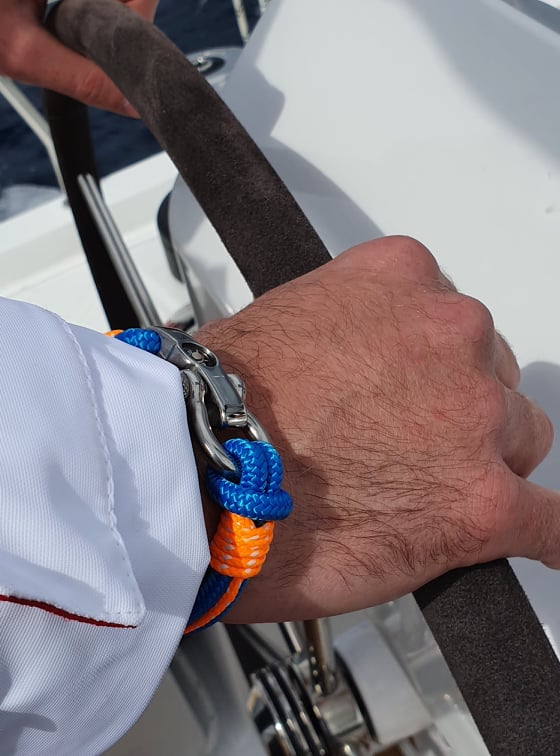
Hands down, our favourite city to do business is in Split. And our least favourite was Dubrovnik.
Despite its record tourism, you decided to close your Dubrovnik shop as business was worse and worse in the peak season. Tell us about that.
Dubrovnik was the second town we opened a Break Time shop. And the first year was great, business-wise. Then it started to go downhill, as the quality of tourists in Dubrovnik started to go downhill, too. Every business around us was losing customers. It was still a viable business, but it was not worth it for us anymore, we got tired by the everchanging local rules, lack of predictability and lack of support for local businesses. To give you just two examples: the year we opened the shop it took us two months and countless trips and phone calls to Grad just to make sure we got the specifications right for the outdoor shop signs, because it was a new design that Grad wanted. Then we had to make those signs and they were not cheap. Then next year Grad again changed the design – and we sent our shop manager to find out if we were also affected and needed to change them again. She was assured it is not the case, and only new businesses were required to have the new signs. Sure enough, in the last week of June we were told we cannot use the old signs starting 1st of July.
There was nobody available to make us new signs in less than a week. It actually took over a month. Our sales dropped in July and August (which were supposed to be our best months) because we had no outdoor signs, so people had a harder time finding us. It was exhausting and nerve-wracking.
The second example relates also to outdoor signs. Grad has, at the beginning of every street in Old Town, a textile poster signaling the names of each business on that street.
We contacted Grad in February 2016 and asked to have our name on that poster, instead of the name of a business that was in our space a few years back. They told us they refresh the names every other year and that – unlucky for us – was not the year to do it. We asked if we could change the letters ourselves (they were just sticker letters, it would have taken a couple of hundred kuna and a few minutes to do it). We were not allowed. The next year, in spring, we went back to Grad and asked again. Guess what…that was still not the year to do it. Long story short, they finally decided to update the signs in 2019. We had to pay for being there, which meant that businesses that did not pay, were not written on the poster. To me – that is weird (having also the experience of Split, where our names were added on the signs at both ends of our street in one month after we requested it, at no charge to us!). However, we paid the tax (on top of all the other taxes we were paying monthly to Grad Dubrovnik, which were also higher than in any other town we opened shops). That was March 2019. Signs were changed mid-August 2019, basically almost at the end of that summer season. Absolutely ridiculous. The day we closed the Dubrovnik shop I actually felt relieved.
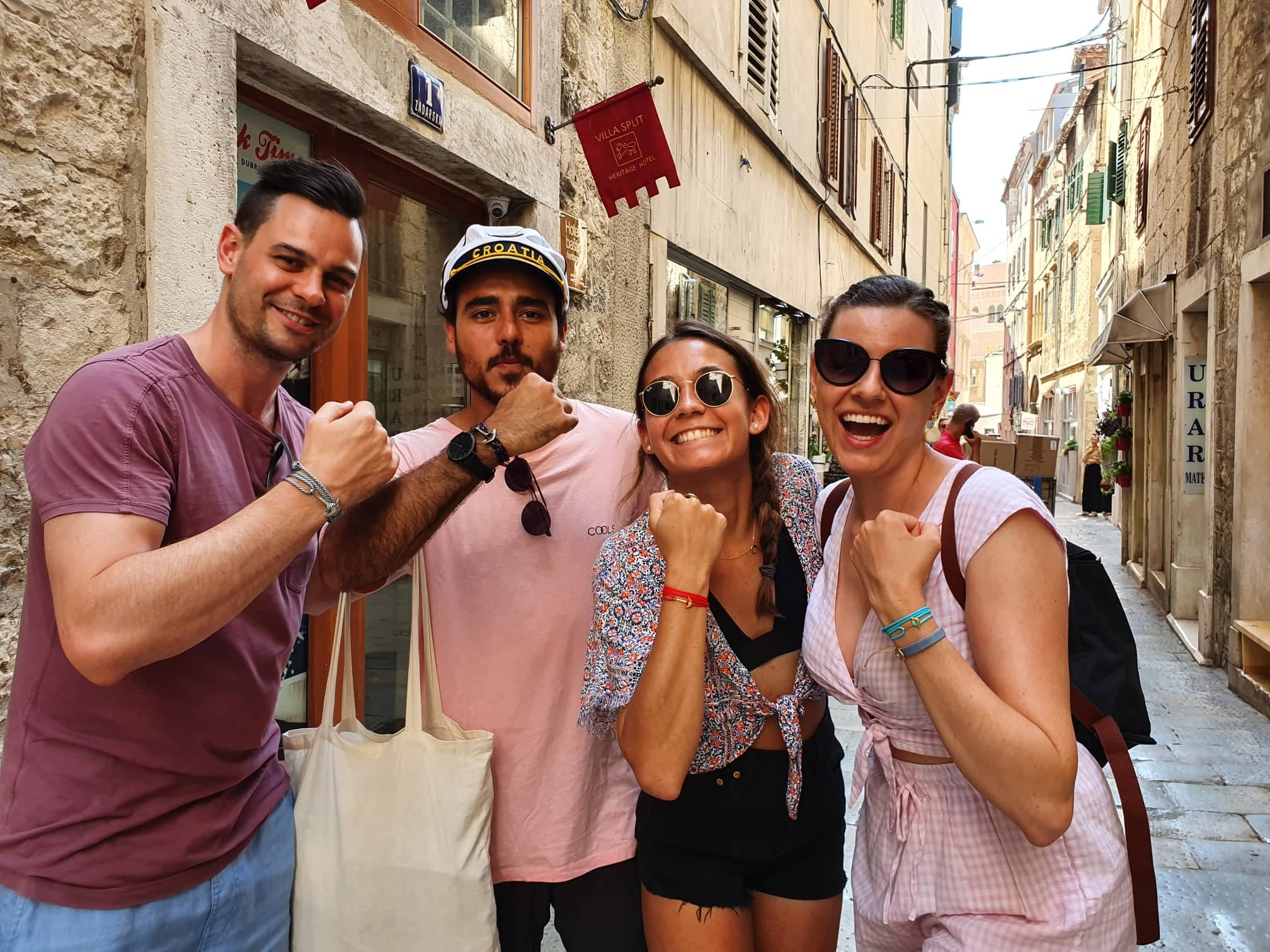
And now a look at the bad and the ugly. Coming from Romania, you are more used to bureaucracy and corruption than most. How has the Croatian business experience been for you in terms of negatives?
The main thing that I have to mention as the biggest negative are taxes. Too many and too high. VAT at 25% is a killer for small businesses. I keep wishing the Croatian Government would wisen up and lower it, in order to give oxygen to the many businesses struggling to survive here and help create a strong middle class, which should be the backbone of the economy.
The second big problem is finding good employees. Or actually finding ANY employees. With the exception of Split, where we are always finding good people and fast, all the other towns we opened shops (Dubrovnik, Porec, Rovinj, Zagreb) that was our biggest nightmare.
In Dubrovnik, for instance, we almost could not open the shop in the first year because we literally could not find anyone. True story: I hired a girl from Osijek without meeting her or even getting her CV…a friend of hers came to us and told us she has a friend in Osijek that is looking for a job in Dubrovnik…I told her I will hire her friend if she is in Dubrovnik the next day. She came! And she actually stayed with us, as shop manager (moving each summer from Osijek to Dubrovnik) until we closed the shop last year.
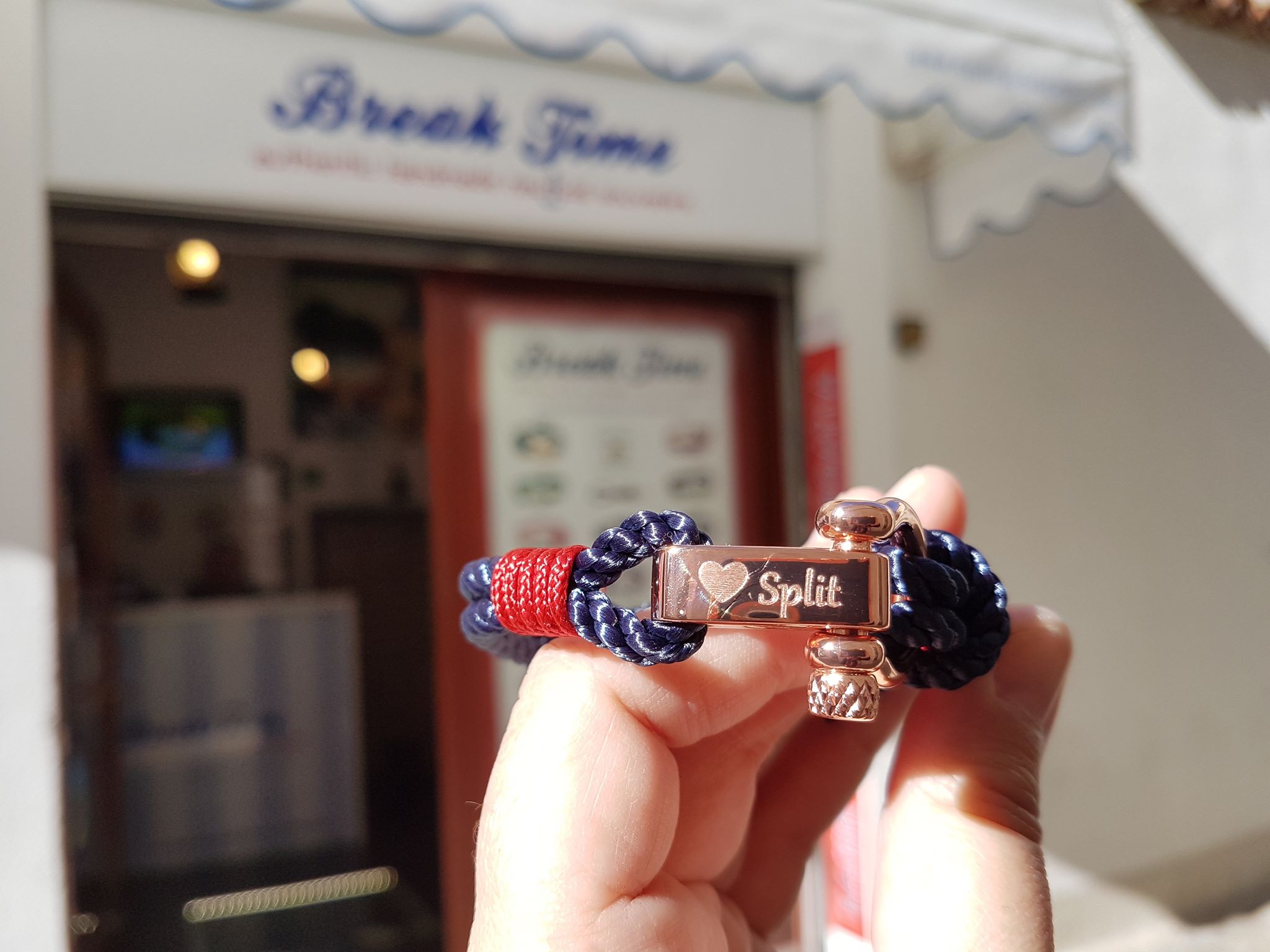
You once told me that some Romanian friends from an industrial town visited you in Split and could not believe the number of opportunities there were for business.
And it is true. All we see around us in Split is opportunity. What I think is needed first and foremost is a shift in mentality. I know things are actually hard for many, but complaining is a national sport that does not help anybody. Especially young people, who start their adult lives already thinking they cannot do anything here and they better leave abroad. The reality is that life is not easy anywhere. A can-do mentality though might make all the difference.
As a Romanian, your appreciation of the bureaucracy and corruption in Croatia is perhaps a little different. How would you compare them in the two countries?
As I mentioned earlier, on the lower day-to-day operational level, Croatia is by far better than Romania. Which is not necessarily always a good thing, paradoxically. Take for instance our building permits. Both in Romania, as well as in Croatia, we always want to stay within the law, we never want to build more than what law says, or more floors or more sqm than what we get approved etc. Both in Romania and Croatia bureaucracy is a bitch.
The law says, in most cases, that public institutions should issue documents within 30 days of the request being made. Sometimes all the clerk needed to do is put a stamp on your paper – but he still would tell you to return in 30 days. However, if you gave him some money…say 20 euros…he would stamp that right there and now. Again – not asking for any illegal documents, just ordinary documents.
In Croatia, we found that for a building permit in a village, we had to deal with three different levels of municipality/county clerks and offices. Each asking dozens of papers to be brought from the other municipality (some which could have easily be obtained online in a minute, but then they would not have the stamp on it, right?). When you bring those, they ask for more. Then they tell you to wait 30 days. Unless you are unlucky and the only clerk dealing with the problem at hand gets sick and goes to medical leave for a month. So…to be honest, we would have happily paid 20 euros to someone to have them do their job. But there was no-one to pay. They simply could not care less that you are losing time and money, and there is nothing you can do but run from one office to the other and wait…and do it all over again.
We have a huge appreciation for our local architect, Ozana Šustić, who is the one dealing with all these issues, not just for us, but for dozens of other clients, I am not sure how she is still in one piece. We have another business that occupies our time and helps us pay the bills so we can continue to live here…but for other people, getting a permit for their house to get renovated in time for the season, so they can rent it to tourists, is the difference between having what to feed their kids with or struggling to get by.
That being said, other than with the real estate-related bureaucracy, we actually had only positive experiences in dealing with authorities in Split. We still do not speak Croatian, except for basic phrases, and we still continue to go to whatever institutions we might need to on our own, without a translator. And every time without fail we encounter clerks that speak English back to us and solve our problems within minutes. I must say this continues to amaze us and I must say we really appreciate this happening to us.
And a new direction for Break Time. You have recently teamed up with Andrija Colak, the king of franchising in Croatia. Tell us about that and your new franchise direction
We are, indeed, very excited about the new direction we decided to follow. After opening six shops in total, we realized we cannot keep it up and develop the business based on this model. It was very hard to run shops basically at each end of Croatia, from Istria to Dubrovnik and to Zagreb, and do a good job at it. However, we could still see the potential for expansion, and we kept getting requests for distribution from all over the world.
We decided to keep just the two shops in Split, where we live, because they were also our best shops and it was easier to run. And to use all the experience we gathered in these five years and to focus our energy on opening our brand for franchising.
Thank you, Paul, for actually introducing us to Andrija – you are the godfather of the Break Time franchise, in a way
We have been working with Andrija since – I think – September last year, to prepare our brand for franchising. I had no idea the amount of work to be done and all the details and manuals we had to prepare, I am so grateful to Andrija for his guidance and recommendations, we truly would not have been able to do it without him. But we feel confident now that we are ready and we have a good, comprehensive, solid franchise in a niche of its own, so we are looking forward to what the future will bring. I must say though, we are targeting less (and we are less inclined to approve franchisees in) Croatia, and more international coastal destinations in countries like France, USA, UK, northern countries etc.
What advice do you have for a foreign entrepreneur looking to start a business in Croatia?
I actually always have several:
- Join local expat groups and ask for feedback, advice, recommendations. For us, that was the greatest fountain of information in a country we knew nobody and did not speak the language.
- When choosing the business you want to open, make sure you do not step on anyone’s (local) toes …it might cost you, since most places in Croatia everyone knows everyone, so you do not want to make enemies.
- Get the best commercial lawyer and accountant that you can find.
- Take every katastrofa story you hear related to the business area you want to activate in, especially from locals, with a grain of salt. And if someone says “that cannot be done”, do not take their word for it, check for yourself.
And lastly, knowing what you know now, would you do it all again? Why/why not?
Well, I have two answers for this question.
If I am thinking about the business we came here to do in the first place (real estate development and maybe tourist rental): 90% I would not do it all over again. Knowing what I know now and seeing how things get stalled, I would tell my 5-years-back-self to stay out of it.
If I am thinking about the business we ended up doing (handmade nautical jewellery), I would totally do it all over again, almost exactly as we did. Because everything we did, all the trial-and-error or trial-and-success things we did brought us where we are now and is giving us the knowledge and opportunity to be able to guide other entrepreneurs to be successful with opening their own Break Time Franchise store.
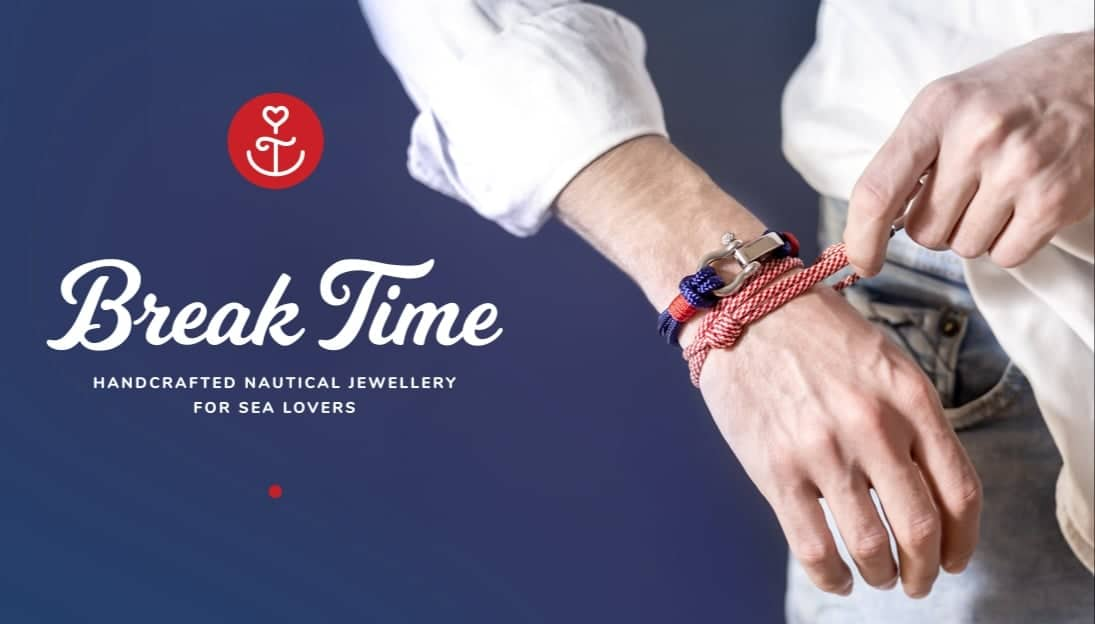
You can connect with Mirela through the official Break Time website.
Are you a foreign entrepreneur in Croatia who would like to be featured in our series? Please contact us at This email address is being protected from spambots. You need JavaScript enabled to view it. Subject Foreign entrepreneur in Croatia.
Natalia Zielinska, a Polish EU Funds Specialist Doing Amazing Things in Ogulin
November 11, 2019 - There are bubbles of positivity all over Croatia and in the most unlikely of places. Bubbly bubbles, such as EU funds specialist Natalia Zielinksa in Ogulin, a long way from her native Poland.
2019 so far has been the Year of the Positive Person. I have met SO many interesting and positive people all doing their amazing things that there really are not enough hours in the day to keep up with them all. Among them is one very cool Polish lady living in Ogulin, who I had never heard of until we both spoke at the first international edition of Business Cafe earlier this year.
Since then, Natalia Zielinska has been seemingly everywhere. So much so in fact that I joked with her that she is the only blonde who appears more in the Croatian media these days than President Kolinda and Kristina Mandarina combined.
Her enthusiastic and dynamic no-nonsense approach to EU funding opportunities has brought considerable success already, and Natalia is quickly developing a reputation as one of the top gurus for EU funding opportunities in Croatia. Coming from Poland, her perspective on the Croatian mindset and approach to business and entrepreneurship is different to my own, and of the many interviews she has given, none was better than one for Tportal a couple of weeks ago - which I have been meaning to do when time allowed, but which you can find below.
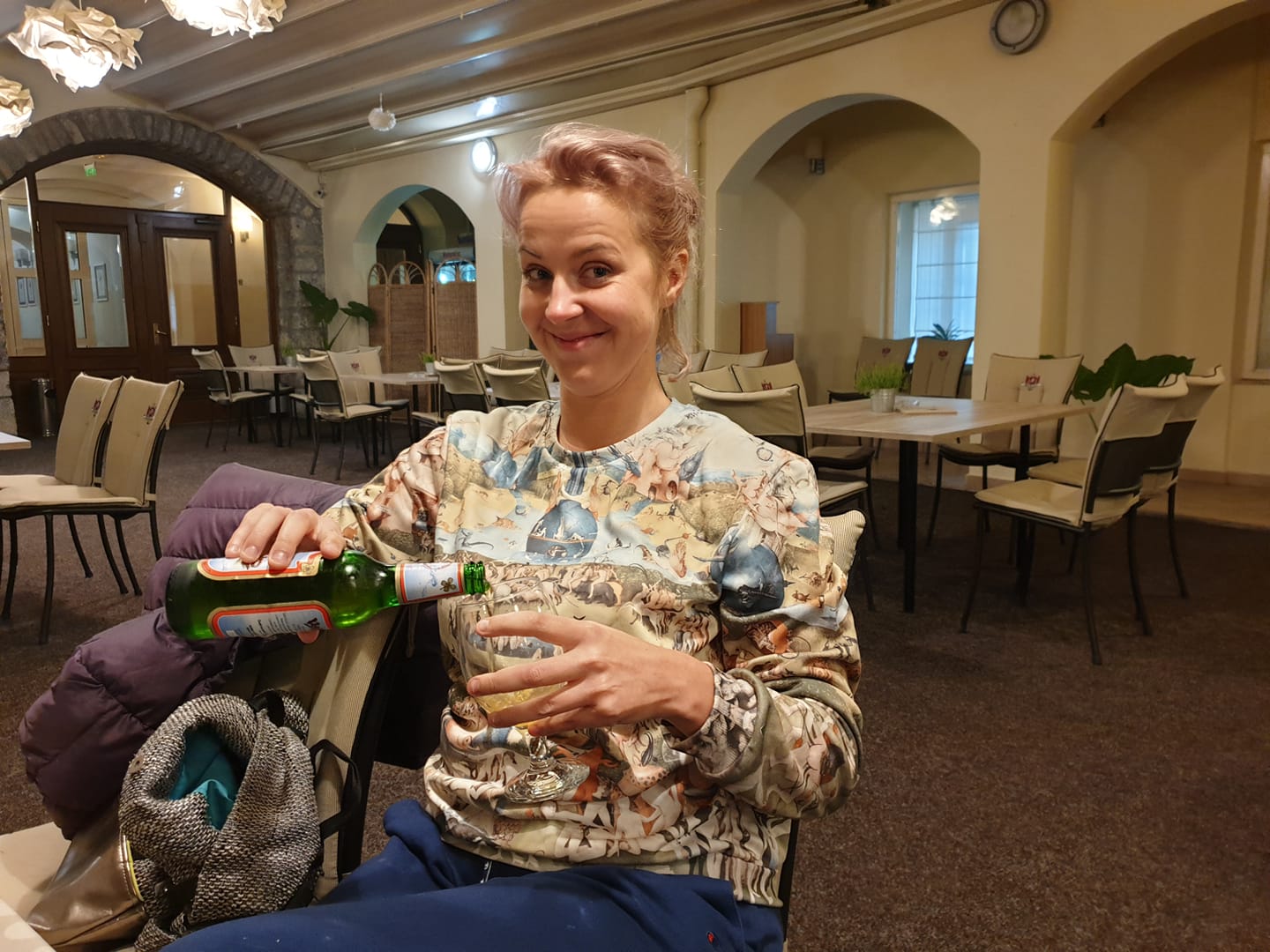
With an eye on some TCN projects of our own, it was great to catch up with Natalia and talk possibilities on my way to the CIHT 2019 conference in Selce, Crikvenica last week. She found the time to explore some opportunities for funding while showing me the vibrant November Ogulin nightlife in her famous Hieronymous Bosch top. More on those plans in due course, but here is the very refreshing Tportal interview in full. It is a great read for those looking for inspiration on succeeding in Croatia, as well as those interested in EU funding.
xxxx
After talking to Natalia Zielinska, you get the strong desire to do just about anything. Work in a field, clean-up your house, or throw yourself into realizing the business idea you came up ages ago. The 31-year-old Polish woman from Ogulin talks about her work as an EU project consultant with contagious energy. She came to Croatia six years ago and almost from nothing has built up a respectable business. There doesn't seem to be a part of Croatia where she hasn't helped getting some European money. She explains in an interview with tportal what brought her to Croatia, why she enjoys life in Ogulin and what her most significant problems with Croatians are.
Zielinska moved to Ogulin six years ago, and she visited Croatia before that, through student exchanges. She even did an internship in our Ministry of Regional Development.
She was born in the Polish town of Gniezno, and she studied Croatian language and European studies in Wroclaw. When she was a student, she worked on EU projects, and one of them took place in Ključ, in Bosnia and Herzegovina, where she met a student from Ogulin. They fell in love, so after getting married, she moved to the center of Croatia.
Her business partners from Poland offered her the chance to start her own business here, because of her knowledge of EU funds and Croatian language fluency. She took the offer gladly. She started an obrt, and before you know it, she was teaching entrepreneurs and farmers in Ogulin and area what the European funds are. Then the town of Vrbovsko hired her, and she managed the EU funds for them for three years. After that, she went her separate way, and in the last year, she took a position as a director in the Euro Grant Konzalting company, which is also Polish-owned.
Zielinska and her team of two currently administer around 30 projects, with clients from all over Croatia, including towns, municipalities, family farms, as well as small and big companies. In addition to that, Zielinska runs her private projects, such as the Entrepreneurial Academy in Ogulin, as well as the "I Know and I Do" (Znam i poduzimam) project. It aims to teach the young, unemployed people the skills needed for digital entrepreneurship.
How do you have time for all of that?
(laughter) On a regular day, when I don't have to go to Zagreb or Rijeka, there's time for everything. That's the thing about living in Ogulin - everything is very close! If I did the same job in Zagreb, I think I'd explode. I'd lose two or three hours in traffic each day. Here, I can spend that time with my children, and I have two girls, a two- and a five-year-old, or take a walk in the woods. Imagine how valuable that is! Time truly is money. Life is simple in Ogulin, and that allows me to dedicate myself to complex business tasks.
Do you plan to stay in Ogulin once your kids have grown up?
No. I think we'll move to Poland then. Ogulin offers us a quality of life now, which I couldn't have in Poland. But, the children will need more than peace and relaxing. They'll need an inspirational atmosphere. The surroundings of people who will make them become enterprising, ambitious, willing to learn, and move forward. I think that's something that's lacking in Croatia.
<strong?Is there that much of a difference between the Croats and the Poles when it comes to entrepreneurial spirit and forcefulness?
Yes. Most people here are satisfied with bare survival and floating on the surface. You just go along, and if something bad happens, you withdraw. That's a big surprise for me. We Poles see people from the Balkans as fiery and enthusiastic. And then you come to Croatia, where the answer to any problem is "A JEBI GA" (laughter). There's no passion or grit. The truth is that it's difficult to work and for business here. Maybe even twice as hard as in Poland. You open a company there with a click; it's cheaper to run a company, you don't have to pay certain taxes until you're 30... But all of that should make entrepreneurs in Croatia more determined and energetic. The only place where the situation is different is in Zagreb because there's more competition there.
What do you think, why are Croatian entrepreneurs like that?
I don't know. We both lived in communism. The Poles were always trying something to try to get out of that. The story of Polish tourists who used to sell anything from plush toys to car parts after coming back home from former Yugoslavia is quite famous. The problematic situation created an entrepreneurial spirit in the Polish people. They thought out of the box. People in Croatia are pacified. They keep waiting and believe that a big hand will come down to pat them on the head and solve all their problems. Nobody will solve any of your problems. That's been done with a long time ago. You gotta fight for yourself. The only obstacle for development is - you.
Has anything else surprised you in our mentality?
You take injustice too easily. Croatia is a small country; everybody knows everybody. One would expect that in such a society, bad entrepreneurs and politicians will get discarded soon because it's impossible to hide anything. But no. People here accept getting cheated and taken advantage of. They'll spend time with that entrepreneur and politician, and pat them on their back. I find that unbelievable.
How are our entrepreneurs doing with the EU funds? Do they understand their logic?
A lot of people call me to tell me they need help from the EU funds. Those funds are not helping. The idea behind them is not to help you when your business is doing poorly. That's a critical misunderstanding. The EU funds are financial support for stable companies that have clear goals. They are a type of loan; it's just that you don't have to repay the principal and the interest, you pay back with concrete results, which need to be tangible and real. People also don't understand that private people can't use EU funds. Like, I have some apartments for rent, and I want to invest in them. That's great, but get a loan in a bank for that. When I tell them that, they get angry. If you want the EU funds, start a company, family farm, or "obrt" and go into business. The more prominent, more serious companies understand the logic behind the EU funds. But with them, the problem is that the programs are not adjusted to them. So people complain, and I ask them where they were in 2013 or 2014 when the programs were tailored, and decisions where to invest the money were made. Where were the chambers of commerce and other institutions by entrepreneurs? For instance, there are no EU funds for the tourist sector, which accounts for 20 percent of Croatian GDP.
The new European financing period is ahead, starting in 2021. Things can change.
Of course. But you need to work on that systematically, and you must lobby. Nobody is throwing a bag of money your way. Entrepreneurs need to put pressure on the state. Otherwise, the Croatian state is rigid. It doesn't allow consultants or entrepreneurs into the deliberative process so that they could manifest their interest. If it happens again that the state programs things, the same situation will happen again. The funds will not be fully used, as the programs will not be appropriate for the market. Also, there are significant problems with the implementation of programs, as in Croatia, the institutions pretend to be smarter and stricter than the European Commission. The rules applied in the entire Union are made even more stringent in Croatia. For instance, a large Polish company wanted to invest in Croatia. They tried to apply for the EU tender for the commercialization of innovations. I told them that the project wouldn't be successful, as in Croatia, that is not an innovation. It was a device through which they were offering a service. If you change some parameters, you can use the device differently. They got some money for that in Poland, and they hired people. In Croatia, that's not innovation. It's the change in the machine functionality.
How big is the interest in the EU funds?
Big. Usually, the madness starts around 9 am. I get around 15 calls from all over Croatia each day. I managed to cut the number of meetings down. Before, everybody called me to get a coffee. That would annoy me to no end, as they'd tell me their plan, ask for my advice, and then get angry when I told them that it costs money to get my advice. Now I only agree to meet someone when I'm convinced there's some potential in their story. I deal with everything before that on the phone or through emails.
What do you charge clients?
200 to 400 kunas an hour, depending on the type of consulting. The preparation of a project costs 5 to 50 thousand kunas, depending on how much work there is to be done.
What is it that your company Euro Grant Konzalting is offering?
I call myself an expert in turning problems into opportunities. We make a business analysis, take a look at the balance sheet, and then try to find a solution through EU funds. Sometimes all it takes is to connect people or to find investors. We never go into a project which is not 99 percent certain. When we prepare and submit a project, then there's a break of around a year before the client gets the money. Then we administer the project, which is a critical part of our job. We do procurement, stick to the rules strictly, and prepare reports throughout the project, which is five years.
What is it like working with towns and municipalities? Are the people working there capable?
It is complicated to have successful cooperation, mostly because of politics. It was challenging for me, a consultant and a Polish person from Ogulin, to find my position on the market. I needed to prove myself a lot. On several occasions, I gave solutions and offered solid projects to some municipalities or towns, only to find out six months later that they hired a politically convenient consultant. The towns I work with are at least somewhat independent and can hire a consultant with no political connections.
Do you even follow the politics in Croatia?
Yes, because I have to. Every change in ministries affects my job directly.
What do you say about all those discussions of partisans and ustaše?
I find that ridiculous. The Second World War ended over 70 years ago. I regret that those keep getting forward, as there are so many other topics, fantastic and positive.
What is the situation in Poland? Do people there talk about the topics from WWII all the time?
For younger generations, born in the EU, the free market is quite usual. They don't appreciate that, so they turn to the right-wing parties. A 15-year-old kid takes a flag to the protests and yells 'kill a communist.' What does he even know about communism? For kids like that, it's better to take their computers and create a cool project.
Let's leave the past and talk about the present. You started the Entrepreneurial Academy in Ogulin. What gave you that idea?
The project was envisioned and prepared in 2017. The idea came to me when I was talking to the local entrepreneurs who complained about the lack of information and education. For each piece of advice or information, they needed to travel to Zagreb or Rijeka. The project is based on the experience of our company-friend PL Europa, which has an entrepreneurial incubator in Poland. We were waiting for an appropriate call, and when it appeared, we got around 490 thousand kunas of funds from the European Regional Development Fund. The Academy started working in August of last year, and we've had over 70 participants. In addition to that, we were able to open a coworking space in Ogulin, together with Ogulin town, called "Ćošak" (corner in English).
Recently you started your second big project financed by European funds - Znam i poduzimam (I Know and I Do). What's its goal?
Our goal is to train 60 young people in digital entrepreneurship. More specifically, we want to encourage them to self-employ by developing business ideas online. The lecturers are the well-known influencers, such as Ella Dvornik, the travel and lifestyle blogger, Matija Lazarević, the YouTuber known as LayZ, fashion designer Ivan Alduk, flight attendant and food blogger Maja Brekalo and fashion blogger and lawyer, Isabella Rakonić. We added a project manager and EU funds expert Roman Marinović to them. During the project, those 60 young people should learn about the law, the finances, using the EU funds as well as national funding, management, protection of the innovations. We got around 530 thousand kunas from the EU funds for this project.
What's the quality of the EU funds consultants in Croatia? Is your competition strong?
I am the vice-president of the Association of EU funds professionals with the Croatian Employers Association. Experts at the highest level surround me there. However, in the last years, a large number of businesses appear, I call them the wannabe consultants who work on projects without setting the price from the start. They work with companies that can't afford to pay for the preparation of the projects, but they do not care. They are paid a percentage of the funds as if they're unaware that a company that can't afford to pay the preparation of a project won't be able to finance the project itself. I think that's absurd, why waste time and resources on something you're not guaranteed will be able to be completed in the long term.
Natalia has previously been featured on TCN's Croatian Foreign Entrepreneur series. If you are a foreign entrepreneur trying to make it in The Beautiful Croatia and would like to be featured, please contact us on This email address is being protected from spambots. You need JavaScript enabled to view it. Subject Entrepreneur.
Croatia's Foreign Entrepreneurs: Sara Muriuki, from Nairobi to Zagreb
August 17, 2019 - Continuing our look at the foreign entrepreneurs trying to succeed in Croatia as so many are emigrating, meet Sara Muriuki, who swapped Nairobi for Zagreb.
Living in Croatia, I don't get to meet so many Africans, and every time I do, I invariably find myself laughing loudly at the infectious and positive outlooks by the African characters I meet. It takes me back to the times when I lived in Kenya, Rwanda and Somalia. Happy times and incredible memories for life.
My latest encounter was a with a hilarious Kenyan lady called Sara from Nairobi, and we spent much of the afternoon laughing as we talked about life in Croatia and in the Westlands neighbourhood of Nairobi, where we had apparently been neighbours almost 20 years ago. There will be more from Sara on TCN shortly, but in the meantime, her she is, the latest foreign entrepreneur trying to make it in The Beautiful Croatia.
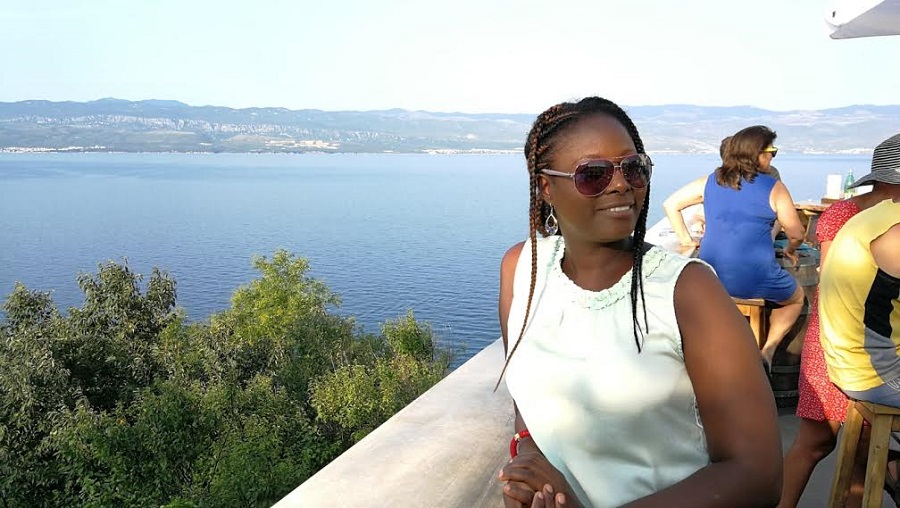
1. First and foremost, why Croatia and what is it you do?
My name is Sara Muriuki, I moved to Croatia three years ago (2016) so that my son Marko could have enough time to adjust and learn the language before starting school in September 2019. It would be really hard for him in the public school without a basic knowledge or understanding of the Croatian language.
I was born and raised in Nairobi, Kenya (lovely country). I met my Croatian husband in Nairobi where he worked for the United Nations as the security manager for the Somalia office.
Our son was born there and when he was 3 years old we decided it would be best if he grew up in Croatia. So mother and son moved while my husband stayed in Somalia, and later on in Afghanistan, where he is now working.

In 2016 I opened a company Ianson Trading d.o.o based in Samobor with the main aim of marketing Kenya as a tourist destination not just for Croatia but for the neighbouring countries as well. Normally we have a package for Safari to Kenya which starts in Zagreb to Nairobi via Doha for ten days. This package is regular each year from the 26th Dec to 4th Jan. Mainly because Croatians prefer to be with family in July and August at the Adriatic. Other packages are tailor-made to suit the needs of the clients. Normally we have a few installments for the package so as to cater for the average Croatian on a tight budget.
The other product we have is furniture from Kenya all made from the amazing African Mahogany wood, very beautiful and long-lasting.
2. Tell us about some of the differences of your expectations of running a business in Croatia and the reality.
The expectations are not the same as reality mainly because of the low wages/salaries. This means that most people are limited in their abilities to spend on travels abroad especially out of Europe. For the furniture only a few Rich Croatians can really afford and also one needs to have a big house for the heavy furniture.
3. What (if any) bureaucratical issues have you encountered and how did you overcome them (i.e. any advice to the would-be entrepreneur?)
For me the biggest issue was MTU...minimum technical requirements which didn't make sense for online shopping.
Advice for aspiring entrepreneurs would be to first thoroughly research the market and all the paper requirements as this can waste too much time.
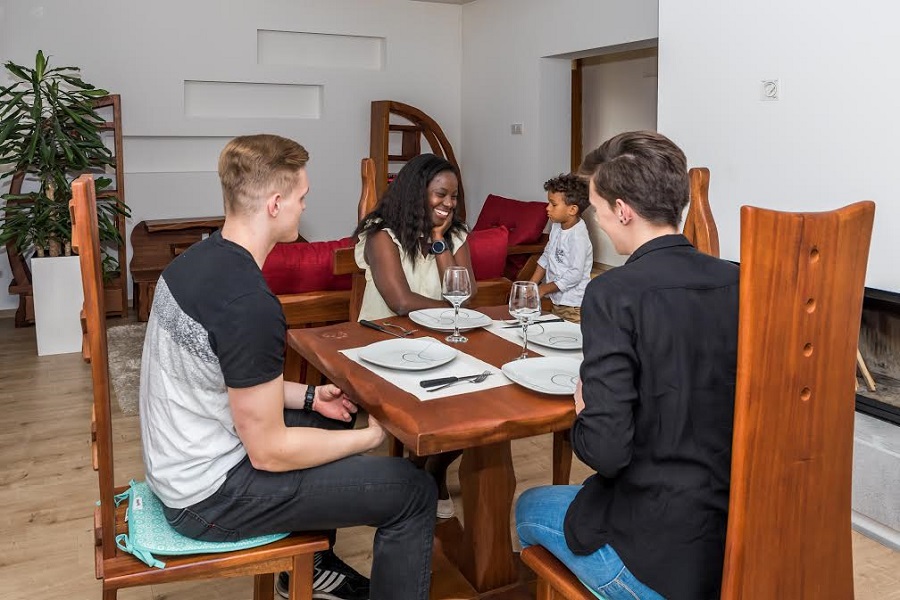
4. How is your product or business perceived in the Croatian market?
Safari is highly interesting for many people and it’s very well received. Furniture is exciting and also very well appreciated but for a very small and specific niche.
5. What were the opinions of your friends and community, were they supportive of your idea, or…?
My family and friends were very supportive of me and even went out of their way to ensure that it will be successful.
6. What are some of the greatest challenges you have faced in business in Croatia?
Bureaucracy is the biggest obstacle to doing business in Croatia.
7. If you knew then, what you know now, would you have come?
Definitely, worth all the effort.
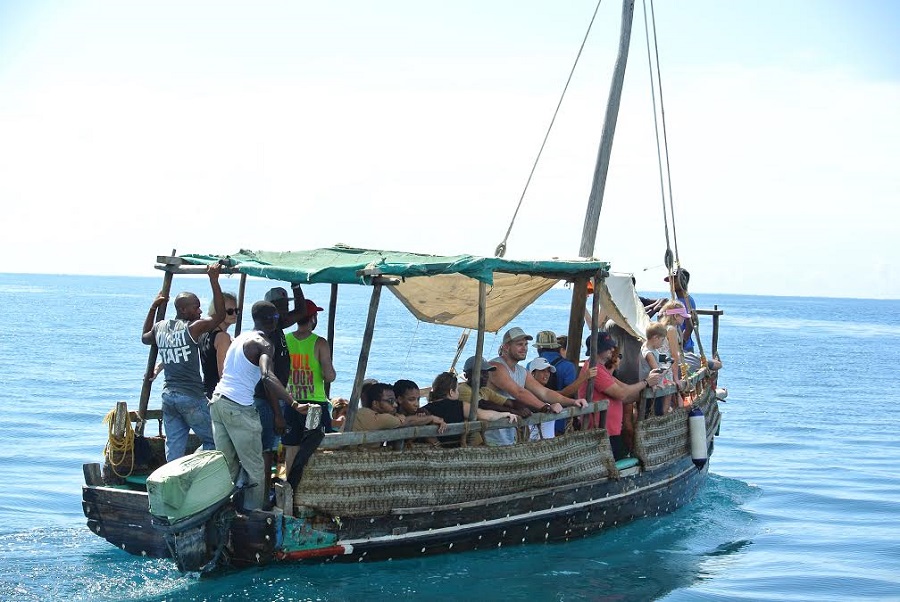
8. What are 3 things you love about Croatia?
-The best thing about Croatia is the social life..no pressure
-It is very small and so it’s good for life as the basic social amenities are not choking.
-The beautiful coastline.
- Baka service (I have an amazing mother-in-law who really helps out).
9. What are 3 things you would like to see improved in the business climate in Croatia?
Reduction of the required paperwork from the government.
Increment of quotas for foreign workers to avoid the shortages of employees.
Reduction of taxes.
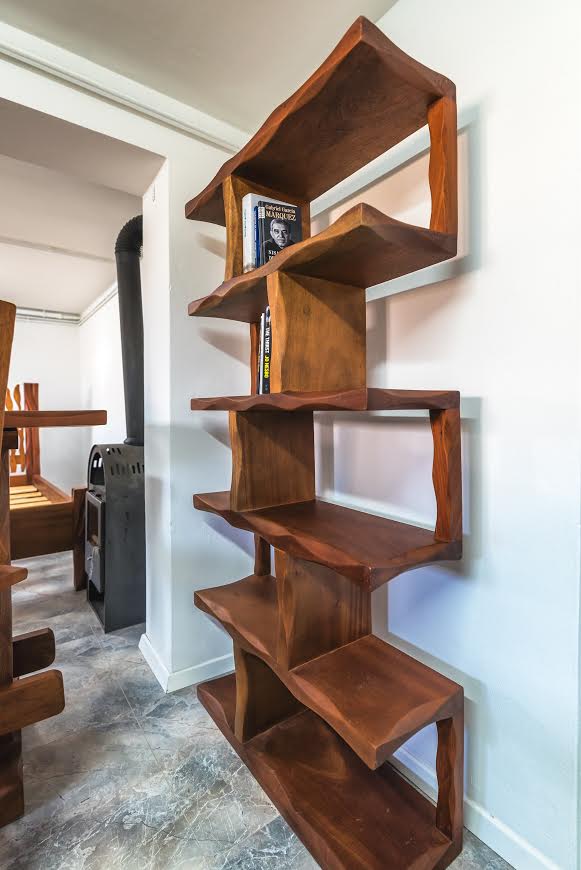
10. How is it working with Croatians in terms of a business mentality?
Most Croatians are very open-minded and open to partnering with foreigners.
11. Advice for foreign entrepreneurs thinking of coming to Croatia?
My advice is to first make good market research for your product, and be bold enough to make the move. Fortune favours the bold.
Website is www.iansontrading.com
Facebook : Ianson Furniture gallery
Ianson African Safari
To learn more about the foreign entrepreneurs trying to make it in The Beautiful Croatia, check out the heroes we have covered already.
Are you a foreign entrepreneur trying to make it work in Croatia and would like to promote your story? Contact us on This email address is being protected from spambots. You need JavaScript enabled to view it.
Croatia's Foreign Entrepreneurs: Scott Coleman, from San Francisco to Zagreb
July 31, 2019 - Continuing our look at the foreign entrepreneurs trying to succeed in Croatia as so many are emigrating, meet Zagreb resident Scott Coleman from San Francisco.
First and foremost, why Croatia?
A woman. My lovely, patient and significantly more intelligent wife is Croatian. We had been living in London where I was a finance lawyer. My law firm asked me if I wanted to move to Singapore or New York. We chose Zagreb, which I think was a surprise to the firm. London is amazing, but we wanted more time for family (and better weather). I absolutely love living in Zagreb. It’s the perfect size, funky and there’s so much do and see just a short drive away.
INTRO YOUR BUSINESS, what is it you do?
We are an online marketplace where companies leave requests for digital services (web/app development, digital marketing, branding, etc.) and then digital agencies pitch for work. We’re a startup but we’re growing fast. We opened the marketplace in October 2018 and have already had $41m in projects and over 4000 agencies from 110 countries. We won an international startup competition in May 2018 and in February Startup Grind Silicon Valley named us a Top 50 Global Startup. My business partner Goran Deak runs the place and it was his idea – I just try to stay out of the way.
Tell us about some of the differences in your expectations of running a business in Croatia and the reality.
I have been surprised by the number of expats in Zagreb. We’ve hired people from Brazil, Mexico, India, Poland, France, the US, etc. Like me, many of us are here for love. But it really helps to have an international team when trying to build a global business. It’s also pretty fun to work in a multicultural office.
What (if any) bureaucratical issues have you encountered and how did you overcome them (i.e. any advice to the would-be entrepreneur?)
Where to start…. It took 3 weeks for our company name to get approved. Top Digital Agency was surprisingly controversial. First, it was in English so we needed an official certified translation. Second, the judge objected to “Top” because he believed it falsely implied that we were the best. “Agency” was also problematic because we were told only a government body could have “Agency” in their name. All in all, I think it was 5 trips to different offices and judges just to get our name… During that period, we couldn’t legally pay our employees. Another win for the state.
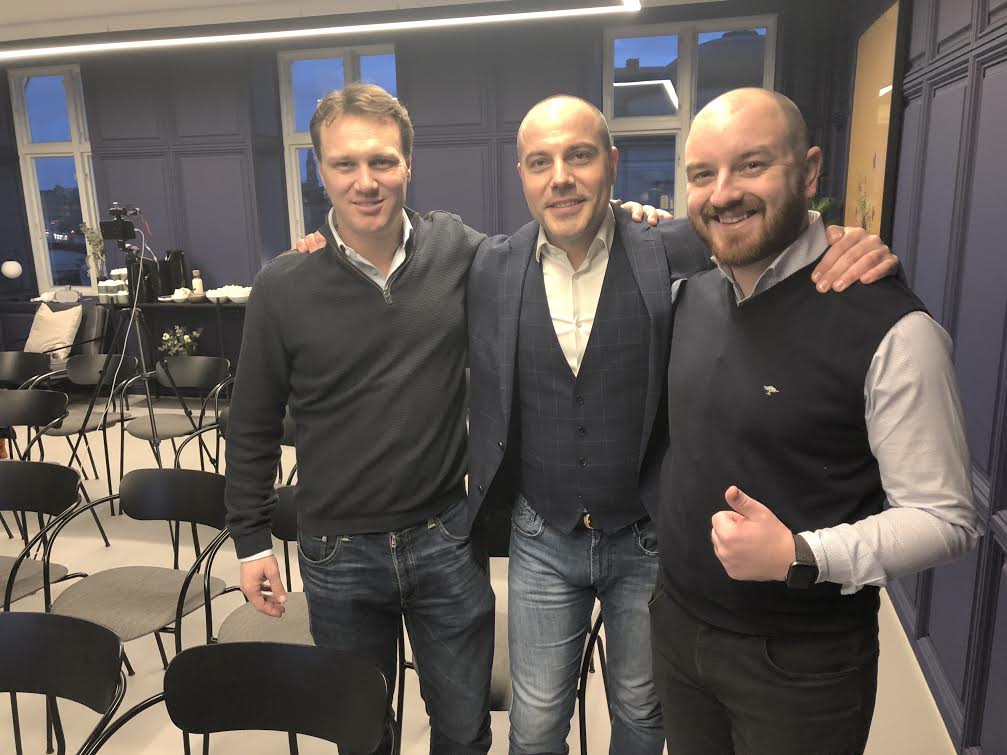
How is your product or business perceived in the Croatian market?
We think it’s perceived well! But the exciting thing about our business is that it’s global. We have Croatian clients but our market is international.
What were the opinions of your friends and community, were they supportive of your idea, or…?
I think people were pretty surprised when my wife and I left careers in London to move to Zagreb. But there is also a growing recognition in major markets that the work/life balance is just not right. I think I have lots of friends that would love to make a similar move – they just need to take the leap. Looking back on my life in London, there’s an emperor has no clothes feeling – our quality of life here is just so much better. We take our kids to kindergarten every day and pick them up. We have dinner together every night and weekends are in Zagorje, Istra or the coast. In London, I mostly ate dinner at my desk, we had a nanny and weekends were for sleeping and recovery.
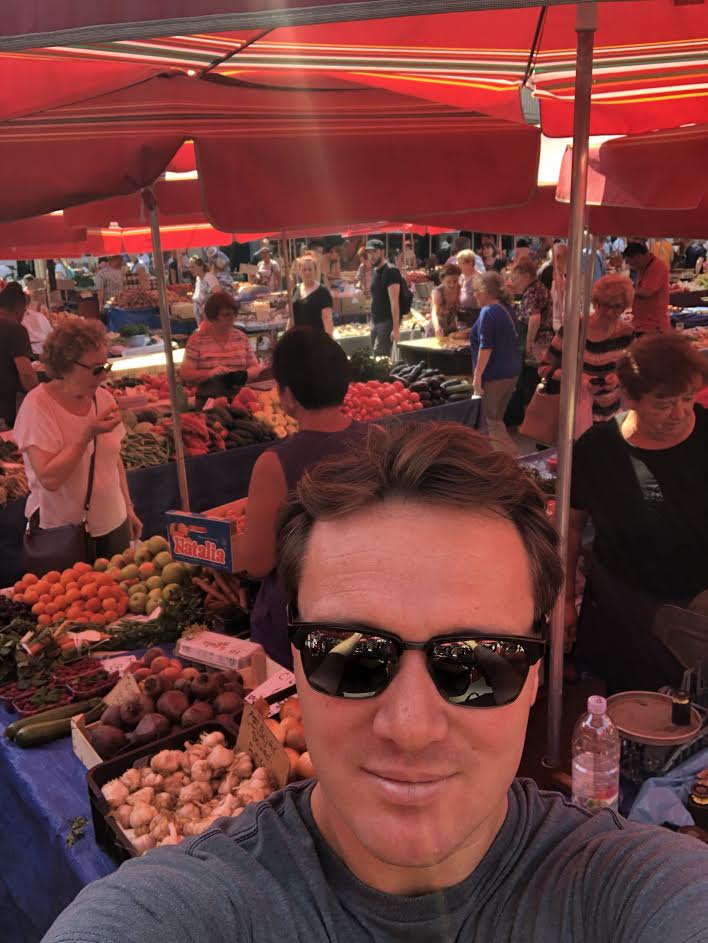
What are some of the greatest challenges you have faced in business in Croatia?
Finding people and finding capital. People: It’s been surprisingly difficult to find people that are willing to work hard. There are lots of smart people in Croatia but what’s missing is maybe an understanding that if you want to compete on the global market, you really do need to work hard. I think the younger generations in particular are a little too focused on coffee and cigarettes but maybe I’m just a grumpy old man. Capital: Until recently there just wasn’t much capital in Croatia for startups. If you look at other locations, there are many more funds, business angels. small business loan programs and tax breaks. Funderbeam, Fil Rouge Capital and others are really important developments for the region and investment is coming.
I think the entrepreneurial ecosystem is developing and ready to grow rapidly. We just need someone in government to recognize the potential that tech startups have here. There are some really amazing tech companies in this country: Infobip, Rimac, Gideon Brothers, Include Nanobit and us (). Investment and de-regulation should be focused on the digital space not just on more tourism offers. This is how you keep your young, smart people in the country and create good jobs, not just more summer service industry positions.
If you knew then, what you know now, would you have come?
Definitely. I would have come sooner!
What are 3 things you love about Croatia?
Obviously, the country is absolutely beautiful and it is amazing how many different places you can see in such a small area. I’ve also been blown away by the generosity and friendliness of the people. Once you have a friend in Croatia, you have a new family too. And there’s nothing like walking around Dolac on a sunny Saturday morning. But If I had to choose three things: Istra, Korcula and Skampi na buzaru.
What are 3 things you would like to see improved in the business climate in Croatia?
The state is obviously a huge problem in Croatia. You have bloated regulations, bloated agencies and bloated Uhljebs. Together they squeeze the life out of the Croatian economy. Want to improve the economy, keep young people and decrease the dependence on tourism: cut taxes on small businesses, simplify the red tape and cut the needless state bodies that the private sector has to hold up through taxes.
How is it working with Croatians in terms of a business mentality?
I had to get used to coffee meetings. I hardly left my desk in London. Now I feel like I never leave the kafic and am usually jittery by 3pm.
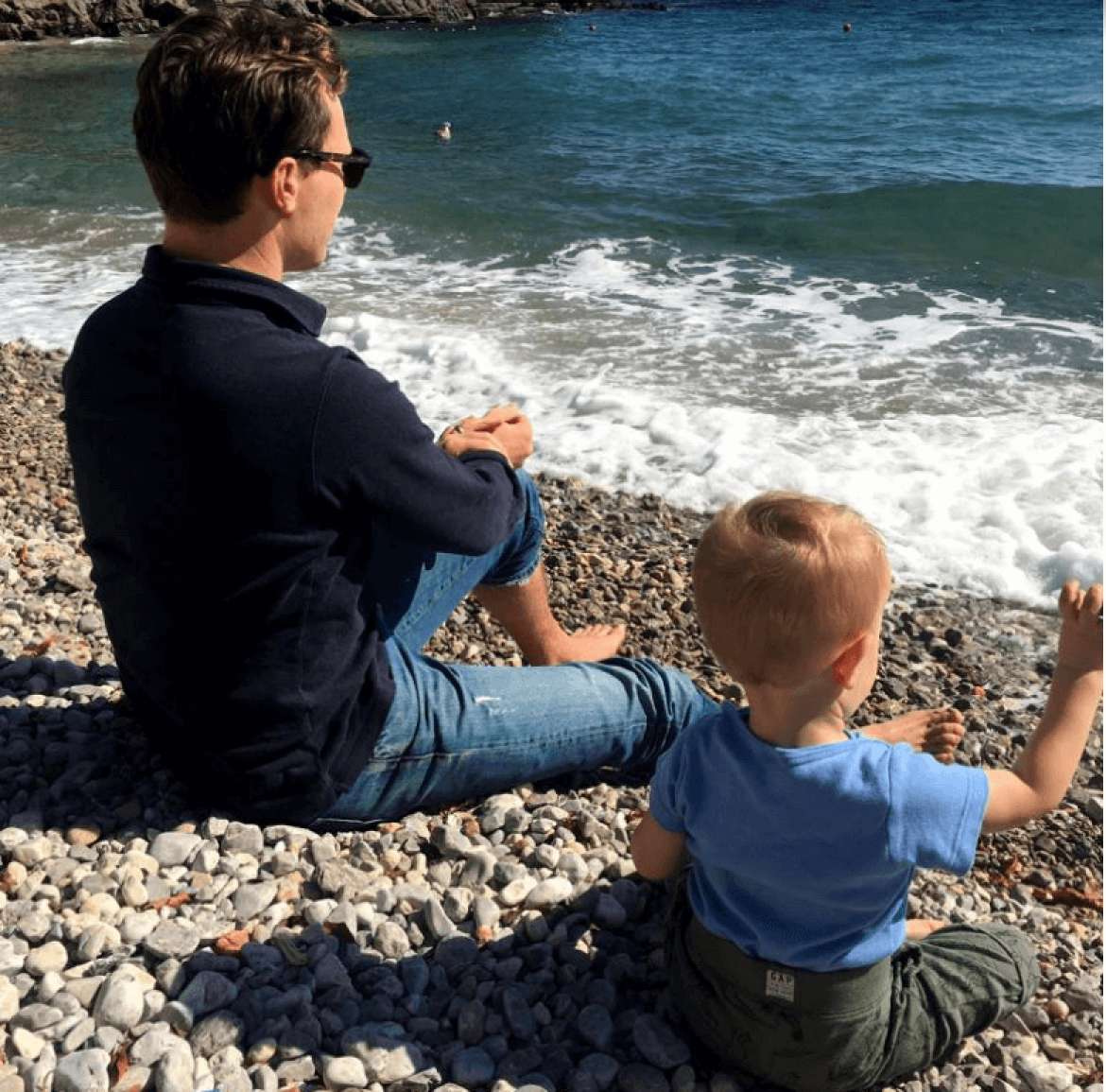
Advice for foreign entrepreneurs thinking of coming to Croatia?
The biggest advice I’d give any aspiring entrepreneur is to find a great partner. Starting a business anywhere is really tough. Even in the best of times, there are lots of hard days. Having a great partner – someone you like and trust – makes it much, much easier. I got lucky to go into business with Goran both because he had already owned a business in Croatia and because we get along so well. Whenever we have a bad day or we just need to move one from a bad moment, we order a round of the worst travarica in the kafic.
Neither of us are travarica fans. But there is something about sharing a face-cringe with your business partner that really helps you see the big picture. Because after all, nothing can be as bad as a bad travarica. Fortunately, it’s been a while since the last round.
You can connect with Scott via the Top Digital Agency website.
Croatia's Foreign Entrepreneurs: Matthew, from London to Zagreb, Alzheimer's Research, Digital Marketing
July 29, 2019 - Pioneering Croatian medical research into Alzheimer's detection is just one of the hats Matthew Elliott is wearing in Zagreb since making the switch from London.
Continuing our look at the foreigners who are trying to make it in The Beautiful Croatia, meet Matthew Elliott. While not strictly an entrepreneur, we decided to include him in this section because he is doing something VERY interesting.
First and foremost, why Croatia?
Why not? It wasn’t long after Brexit was decided (still a sore subject) and I fancied a new challenge, as well as increasing my skillset from purely editorial to marketing and PR. The fact there was more than a week of sunshine a year also helped to confirm my decision.
INTRO YOUR BUSINESS, what is it you do?
I work for Manning Global as a Digital Marketing Specialist in the heart of Zagreb and also run their blog page, as well as all of their social media. I'm also involved in an innovative medical freelance PR project (also in Zagreb) that helps to diagnose Alzheimer's disease - more on this to come in a separate article, but there is some more information at the end of this interview below.
What (if any) bureaucratical issues have you encountered and how did you overcome them (i.e. any advice to the would-be entrepreneur?)
The amount of paperwork here is insane; you always need to fill in a form just to fill in the next form! Seriously, the amount of bureaucracy is on another level and puts off many entrepreneurs from starting their own business. My advice to any would-be entrepreneurs would be to ensure you truly know the market before taking the plunge, as it’s a lot of upkeep from an administrative point of view.
How is your product or business perceived in the Croatian market?
Well. As we’re based in recruitment, staffing and managed services, it’s nice to provide a service that helps the Croatian economy flourish and keep the labour force in this country.
What were the opinions of your friends and community, were they supportive of your idea, or…?
I’m pleased to say that all of my family and friends supported my decision to leave Blighty and emigrate… probably because they knew they’d get a nice holiday out of it! ;-) On a serious note, they were all fully behind me; they knew I needed a new challenge and to sample a different culture. I already had a few friends that had taken the plunge (one lives in the States and another in Spain), so I spoke to them before and they more than alleviated any fears I had.
What are some of the greatest challenges you have faced in business in Croatia?
Apart from all the paperwork? Well, the language is proving pretty tricky to master, I must say. Plus, the economy being what it is, the salary here doesn’t truly represent the work being undertaken. Sometimes it’s very disheartening to think about what you could be earning back home in the same industry, with the same amount of experience and skillset.
If you knew then, what you know now, would you have come?
Yes, I still would have. Although sometimes it’s been an almighty struggle - both from a cultural and financial point of view - I met the woman of my dreams and am the happiest I’ve ever been in; both in the boardroom and the bedroom.
What are 3 things you love about Croatia?
The weather; you get ACTUAL seasons here… the coffee; seriously, have you tasted it?… the sea; I’ve never seen a more beautiful shade of blue in all my life!
What are 3 things you would like to see improved in the business climate in Croatia?
Wages paid on time would be a good start. Streamline the admin, oh and give employees an incentive to work for you; people should invest in people.
How is it working with Croatians in terms of a business mentality?
Sometimes it’s a struggle, especially for someone used to the London rat race. Now I know why there’s no ‘Coffee to Go’ here in Zagreb; Croatians like to take their time, which is all fine and well, but when it comes to deadlines and career progression, this starts to become a problem.
11. Advice for foreign entrepreneurs thinking of coming to Croatia?
Yes, know your market, know your customer, oh and be sure to pack a good pen ‘cos you’re gonna need it for the paperwork!
And now, for a little more on that Alzheimer detection project. There will be much more information about this exciting Croatian medical research work coming soon, but here is what we can tell you now:
Intro to Check My Brain
Check My Brain is the only medical test which numerically estimates your risk to enter into a symptomatic phase of Alzheimer's disease. The results are reviewed by expert physicians. Check My Brain is the most simple test available in the world: 20 hairs. 20 seconds of your time. This method is based on the most modern and most reliable stem cell approach and the results are visible only to you, protected by Check My Brain’s online platform.
About the inventor...
Check my Brain is the brainchild of the Head of the Laboratory for Stem Cells in Croatia, Prof. Dinko Mitrečić, MD, PhD. Prof. Mitrečić has vast experience in the management of international projects aimed to discover innovative therapies for brain diseases. He is involved in the European advocacy of brain research and innovative therapeutic technologies: he is the head of Laboratory for Stem Cells in Croatia, General Secretary of the Croatian Brain Council and is an expert member of the Management Board of European Joint Program for Neurodegenerative diseases.
The need for Check My Brain
Check My Brain is a breakthrough in medical diagnostics. It’s a simple, innovative medical test based on the most recent discoveries in medical research that aims to help millions of people worldwide. By obtaining neurons from just 20 of your hairs, Check My Brain is able to give the precise numerical estimation of the risk for entering into a symptomatic phase of Alzheimer’s and other diseases of the brain.
Current treatments can only slightly slow down the progression of brain diseases, and thus patients depend highly on the care from family and specialised institutions. One major reason why we’re currently unsuccessful with the treatment of brain disease is lack of simple test for detecting disease in its early stages. The brain is almost impossible to access, since it is positioned underneath the skull, hidden behind the blood brain barrier. This means blood tests or scans cannot detect brain disease in its early stages.
By using stem cell technology we will transform your hair cells into your own brain cells. They will allow us to detect possible early signs of developing brain disease. If we were to observe any abnormalities, we will then be advised to perform more detailed testing in the clinic. If your disease is detected in the early stages, you will be treated immediately, in order to postpone the progression.
Partners of Check My Brain
Check My Brain is part of Omnion Research International. At Omnion Research International, we specialise in providing dynamic scientific solutions in the field of neuroregeneration, neurorestoration and biotechnology. We use advanced research techniques and our Biomedical Research Lab possesses the necessary technology to explore and investigate scientific hypotheses.
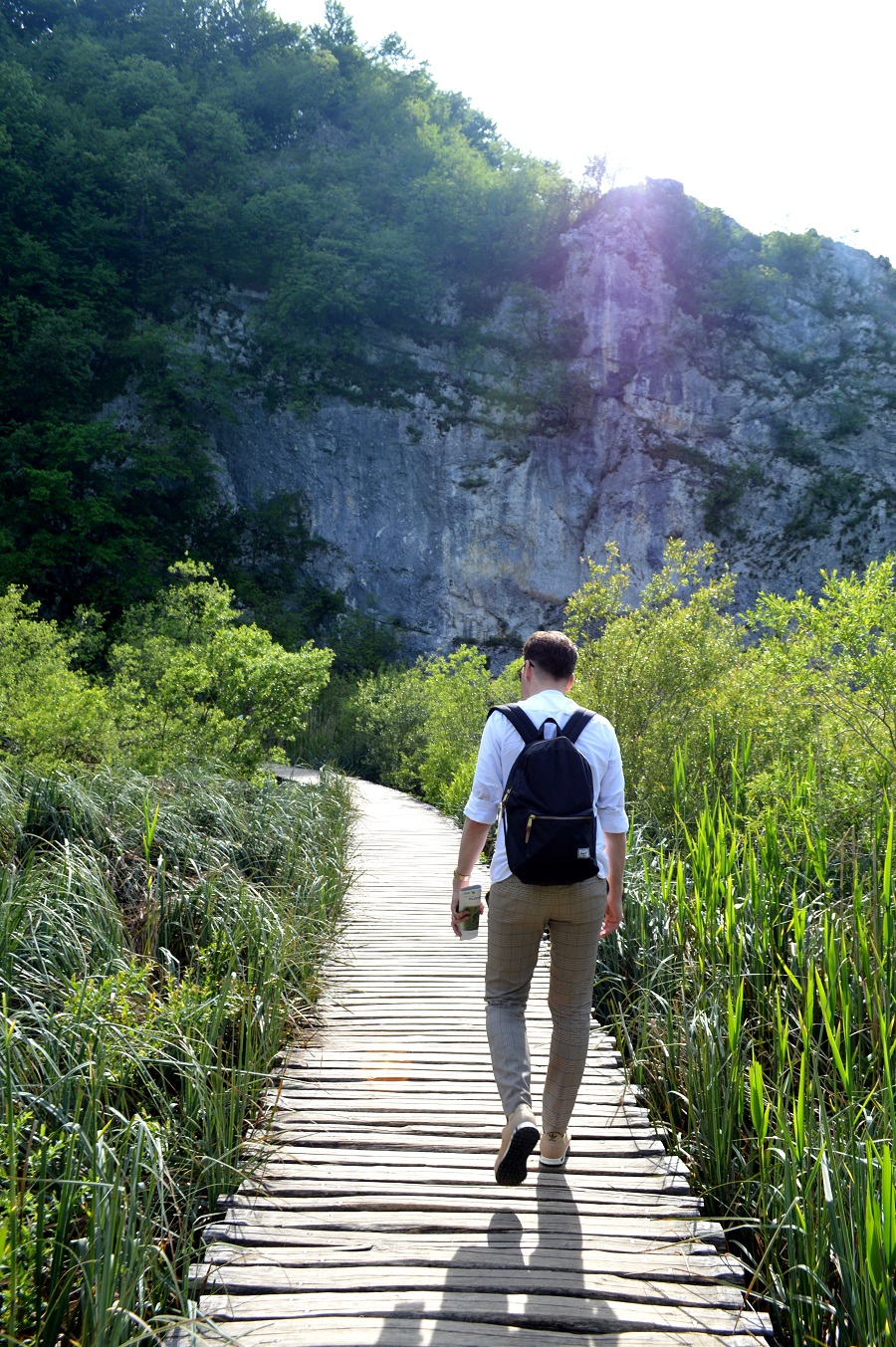
Meet ch-aviation: Swiss Global Aviation Data Leaders with Growing Zagreb Subsidiary
July 29, 2019 - They are the global leaders in the aviation data industry, have an expanding subsidiary in Zagreb, and they are looking for more talented Croatian staff. Meet ch-aviation.
Croatia never ceases to amaze, all the more so for me when I stopped focusing 100% on tourism and started to explore what the world of Croatian business and entrepreneurship had to offer.
It was quite extraordinary. I met a Syrian based in Vukovar employing 750 people, a Brit just outside Zagreb with the biggest baklava factory in Europe, and a Zagreb company which was a fintech global leader with foreign staff from no less than 24 countries, just as all Croatia's talent is emigrating. Extraordinary.
And then there was ch-aviation.
I first cam across the ch-aviation website about six years ago, and I was thrilled. Here was a bunch of very efficient Swiss guys posting the latest information about flight news before anyone else. Their knowledge of the seaplane situation was detailed. They became the easiest blogs of the week, and I was often first with the information almost every time. German Wings has announced five new summer routes to Croatia, that kind of thing.
God Bless Switzerland and your efficiency and great work ethic. If only we had that in Croatia.
So imagine my surprise last year when I got an email from CEO Thomas Jaeger and CCO Max Oldorf saying that would be in Zagreb on a certain date and would like to meet. Zagreb? I thought to myself. Well, I guess if you are in the aviation business, it made sense to travel and keep in touch with the latest. We agreed a meeting place, after which Oldorf gave a GREAT TCN interview on why the seaplanes failed and whether or not they would fly again.
And that's when I was amazed all over again, because it turns out that they are regular visitors to Zagreb, because the Croatian capital is their main subsidiary outside their Swiss base. They hired Croatian staff, then hired more, and as they continue with their rapid expansion, they are looking to hire even more.
I went to visit them recently at their office in Zagreb, where CEO Jaeger and Chief Operating Officer Sanja Ples kindly agreed to tell me more.
Aviation data - firstly tell us who you are, what you do, and who uses your services?
Thomas Jaeger: I started ch-aviation as a hobby in the small city of Chur in Switzerland more than 20 years ago – back in 1998. Now it is a bit of a hobby blown out of proportion as we have hundreds of customers around the globe, including airlines, airports, finance and leasing companies, aircraft manufacturers and maintenance organizations for example. Our subscriber list includes worldwide known brands such as Airbus, Fraport, Delta Air Lines, and DHL, but also many industry leading companies that are maybe less known to the general public like the largest aircraft lessor in the world, AerCap.

We are providing decision-makers in the airline industry with relevant and up-to-date airline intelligence and insightful news. We collect, process, verify and make available tons of data in an easy searchable form to industry stakeholders. On our website www.ch-aviation.com, we run an extensive IaaS (Information as a Service) business where people can subscribe to get access to our Airline Industry News and Data.
For example, we track more than 50,000 aircraft worldwide (that’s actually every commercial aircraft with more than 20 seats) and provide the most current and reliable database in the industry for our subscribers. Our customers are also able to access schedules, capacity data, airline and aircraft owner’s contact information and other industry related information.
The company is privately held, led by me and two other aviation professionals from Switzerland.
You are from Switzerland and are a global leader in your industry, and yet you chose to base your business in Zagreb, which is an interesting choice. Why?
Thomas Jaeger: We started our subsidiary in Zagreb back in 2016 and we saw a possibility to build large aviation data hub here. We are now employing almost 20 people here, mainly data researchers and analysts as well as our colleagues in sales. Our decision back then was based on the fact where we are able to find enough talent to work with aviation data and a place which is conveniently accessible from Switzerland and aviation hubs in Europe. Of course it also helped that Sanja, who runs the operations for us here in Zagreb, had been a customer of ours for many years already at the time and someone all of us personally knew well, so we also had a good base to start from in that sense.
How are things working out with a Croatian base?
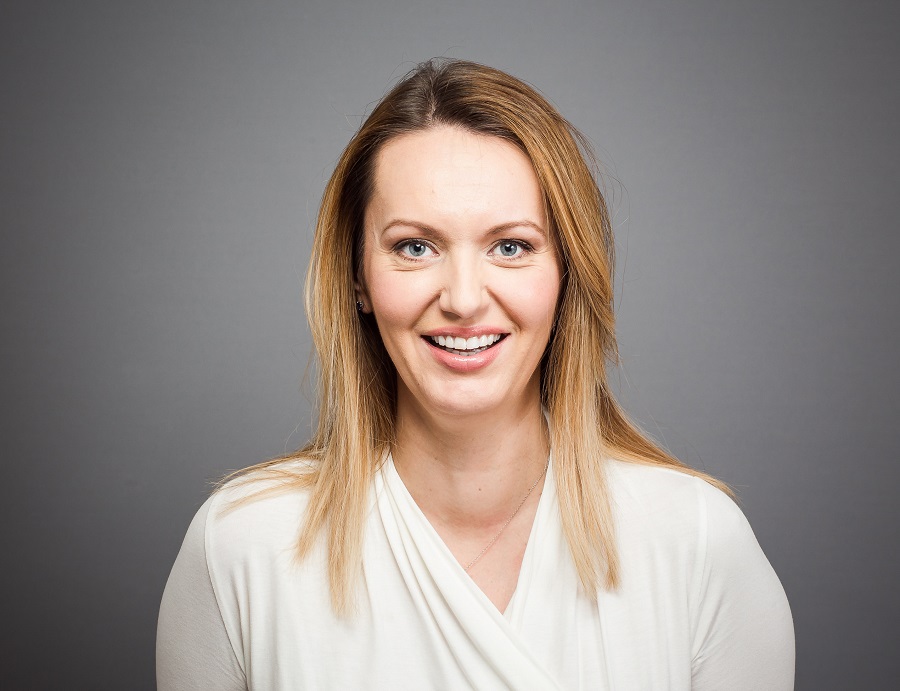
Sanja Ples: I am more than satisfied with our investment so far having recruited more than 20 highly qualified people here. We see many well-educated Croatians who are eager to work in the fast-growing aviation industry. We are committed to our decision to grow here and we expect we will be able to grow our team in Zagreb.
Tell us about your staff. How many locals are working for you and how quickly are you expanding?
Sanja Ples: We opened our office in Zagreb back in 2016 and now we have close to 20 people working here. The aviation sector is growing tremendously worldwide, and we are able to grow our business, so we expect to grow our team by a third each year locally as well. We are constantly looking for data researchers and sales managers to join our growing team in Croatia.
Your experience of a primarily Croatian workforce so far? What are the pros and cons?
Thomas Jaeger: We are able to recruit high-quality people, especially young ones coming directly out of the universities, eager to learn and loving aviation. We do not expect to have a great pool of people with the aviation and research knowledge available to jump into our processes and start contributing on a high level immediately. And that is also a point where we struggle the most: finding experienced management for the Croatian entity which is still rapidly growing. So, we have to develop and foster our own middle management talents in-house and have done so very successfully.
The strict governmental employment regulations and high taxes are also amongst issues we are facing. After a certain paygrade level, the Croatian employees are getting much more expensive than their European counterparts and getting people to relocate to Zagreb from elsewhere in Europe is also rather difficult as a result. That limits the opportunity of having high paid jobs developing in Croatia. That is probably the most frustrating part of the growth process, especially as one can see a great pool of motivated and eager-to-learn youngsters that show a high level of loyalty to the company.
Several IT companies in Croatia have complained at how hard it is to find high-quality staff, as so many people are emigrating in search of better-paid opportunities. What is your experience, and how are you finding staff?
Thomas Jaeger: There is a similar issue with most of the countries in Central and Eastern Europe – it is natural people are always searching for better opportunities for them. At the same time this is an opportunity for us – thanks to our investment in Croatia we can offer a very good alternative to stay here.
Since we started the operations here in Zagreb, the workforce situation has changed a lot. In the first employment rounds, we have had a tremendous volume of applications to process and to choose from. It would be unfair to claim the situation was bad right now, but the volume has visibly dropped.
I understand that you are constantly on the lookout for bright new Croatian talent - what skills and experience should interested candidates possess?
Sanja Ples: First, we need to start from the basics – English is the language for the aviation business and fluency both oral and written is a must. Being in the data business, we are usually expecting our future employees to be able to manage large amounts of data, to be able collect, organize and evaluate data using critical thinking. And last, but not least, you need to have some passion for aviation to join this industry.
If you are looking to learn more about either job opportunities or the best aviation data, you can contact ch-aviation via the official website.
To learn more about foreign entrepreneurs in Croatia, follow the dedicated TCN series.
Croatia's Foreign Entrepreneurs: Jan de Jong, from Holland to Split
July 10, 2019 - Continuing our look at the foreign entrepreneurs trying to succeed in Croatia as so many are emigrating, meet Jan de Jong, from Holland to Split.
1. First and foremost, why Croatia?
As a student, I was working for this Dutch company called M+ Group. Over there I was running the day-to-day call center operations while studying Marketing at the University of Leiden. The founder of M+ Group in the Netherlands was Mato Božić. His name already gave away his Croatian roots. In the last year of university, I had to write my final thesis. Since it had been my wish to live and work abroad, I asked Mato and his business partner if I could do my final thesis in Croatia on the topic of “How to expand M+ Group to Croatia”. And that is exactly what I did. I was 22 years young when I moved to Split.
INTRO YOUR BUSINESS, what is it you do?
While writing my final thesis I first started investigating whether there was a need for a professional call center in Croatia. I discovered that most companies handled their contact centers in-house and that there were very few companies offering this as a service.
So, we decided to go for it. By the time I graduated we had some 30 employees in our Split based office.
Over the years, the company I had co-founded, M+ Group (Meritus Plus d.o.o.), grew rapidly. This resulted in us becoming a market leader in Croatia for providing call center services where we supported our clients in their telesales/telemarketing and customer support efforts – 24/7/365. While growing our call center business we also started a full-service digital marketing agency, called M+ Agency. Today, our agency has offices in Zagreb and Belgrade and employs some 20 digital marketing professionals.
It was end of 2015 when I sold my shares of the call center business which I founded 9 years prior. At that moment we had nearly 400 people working at M+ Group. I remained co-owner of our marketing agency, M+ Agency. While preparing myself mentally for exiting the call center, I was somewhat scared at first, not knowing what I was going to do next. It was just after my exit that I realised that I am not an owner of a call center, but an entrepreneur. I love starting companies from scratch and love turning them into pretty companies that become market leaders.
That’s why I started a completely new business in 2016, MailPlus. Nowadays, this company is known as Webpower Adria. We are the first company in the region to offer an email marketing automation solution, which we today provide to the largest companies and most recognized brands within the Adriatic region. To cut a long story short, we help companies with sending great looking newsletters to their subscribers through the Webpower software and our team supports them in automating this process while at the same time increase customer engagement & Return On Investment (ROI) through an email marketing channel.
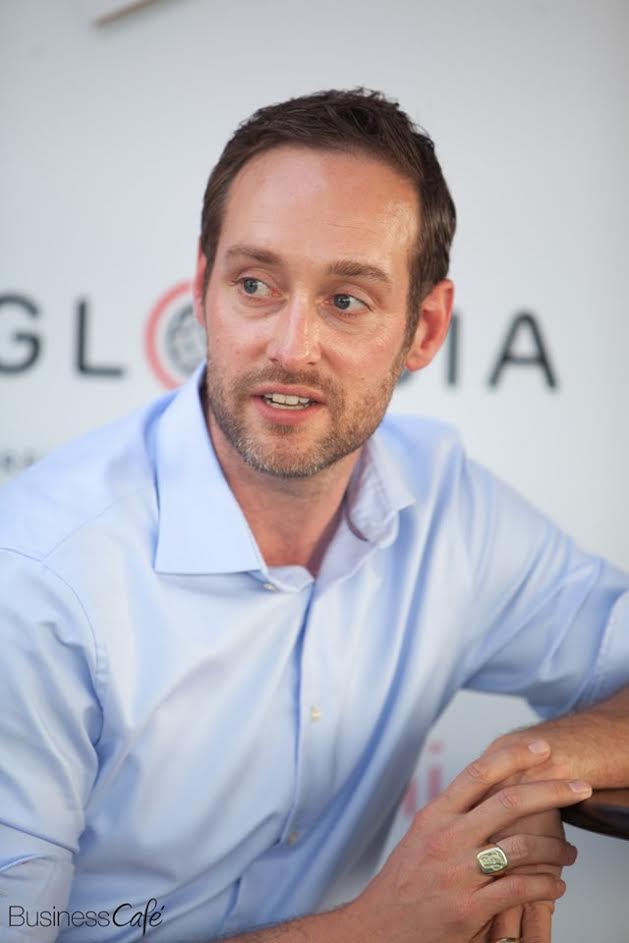
2. Tell us about some of the differences in your expectations of running a business in Croatia and the reality.
I was 22 years young when I started my first business in Croatia. I was young, naïve, full of energy, persistent (some might say stubborn) and hard working. I had high expectations back then and still have high expectations today. You can’t influence many external factors in which you operate, but I am a strong believer that we are in charge of our own destiny. You just need to know and accept that this comes with sacrifice, hard and smart work.
3. What (if any) bureaucratical issues have you encountered and how did you overcome them (i.e. any advice to the would-be entrepreneur?)
I did not encounter many of those issues, but I always had a good accounting firm and lawyer supporting me with everything I did. Fun fact is that people working at immigration service at the police did not speak English. So, I brought my lawyer to support me. My advice: hire a good fluent English & Croatian speaking lawyer and accountant.
4. How is your product or business perceived in the Croatian market?
I honestly don’t know, I never asked anybody. But judging by the number and type of clients that we serve I think that my companies offer a great and sometimes unique proposition. In the niche markets in which we operate(d) - call center & email marketing – I never encountered lots of competition. So, I guess we can say that the high-quality products & services we provide are satisfying our client needs in a way that not many other companies (competitors) can do that.
5. What were the opinions of your friends and community, were they supportive of your idea, or…?
Everybody has been very supportive from day one. Many of my friends & family now have a beautiful new holiday destination.
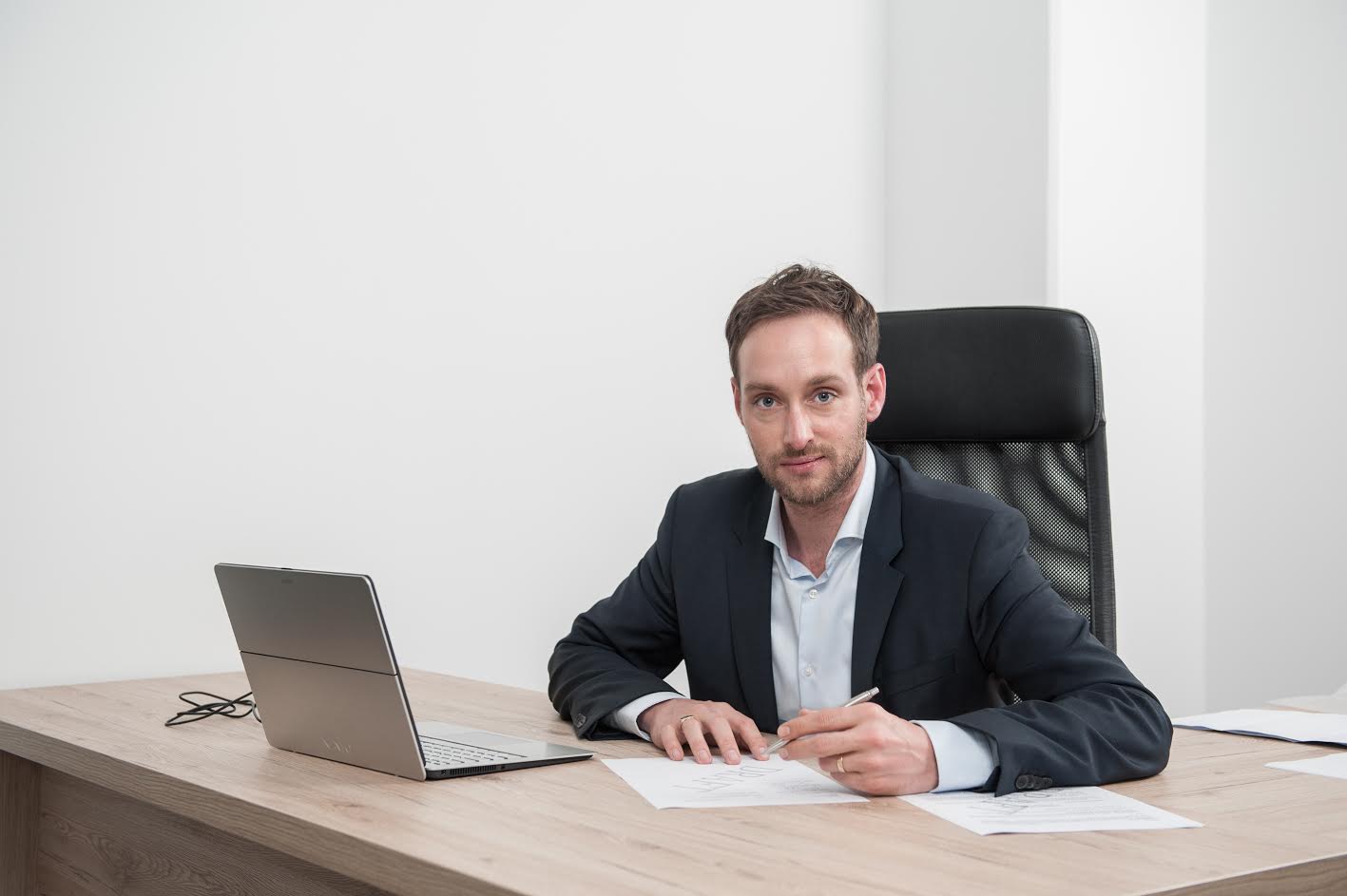
6. What are some of the greatest challenges you have faced in business in Croatia?
I would say cash flow, cash flow and cash flow. But for more than one reason. Besides the fact that some clients are late with their payments sometimes, we always grew very fast. Growing a business fast cost a lot of money, because you need to pre-finance your operations. It took nearly 5 years until we got our first (small) overdraft from a bank. We had to finance most of our growth by our selves.
7. If you knew then, what you know now, would you have come?
Absolutely! I never regret this decision. Croatia is an amazing country with (in my eyes) lots of opportunities. I met my wife here, we have 3 kids and are expecting our 4th baby end of 2019. My wife is Croatian, my kids pola/pola, so I will always have a strong connection with Croatia as I consider this to be my home country nowadays.
8. What are 3 things you love about Croatia?
The Mediterranean lifestyle. (Whether, food, nature & safety).
People are very warm-hearted in Croatia.
Business opportunities. There are many things that are already being done well outside of Croatia that are not being done in Croatia…or can be improved in Croatia.
9. What are 3 things you would like to see improved in the business climate in Croatia?
Interest rates are very high in Croatia compared to western European countries. It would be great if the government would make stronger efforts to attract foreign investments of any sort. I love to see what Mate Rimac is doing where he tries to boost the automotive industry in Croatia. Taxes on salaries are really high, especially if you want to pay higher salaries. Every time I give a raise to somebody from the office we give an equal raise to porezna. The high taxes on salaries significantly impact the buying power of hard-working people in Croatia and it makes Croatian business less competitive when working for international markets.
10. How is it working with Croatians in terms of a business mentality?
Fortunately, I can choose who I want to hire. We don’t hire only based upon skills, but mostly upon attitude towards work. Skills you can teach, attitudes are harder to change. Lots of Croatians are well educated, communicative and hard working.
11. Advice for foreign entrepreneurs thinking of coming to Croatia?
Just do it. Croatia has a lot to offer. Hire a good lawyer and good accountant. Feel free to contact me. I would be happy to offer guidance and support. I see every entrepreneur as my colleague.
Websites:
The company I founded and sold: http://mpluscc.com/en/
Companies I am still involved with:
To learn more about the foreign entrepreneurs trying to make it in The Beautiful Croatia, check out the heroes we have covered already.
Are you a foreign entrepreneur trying to make it work in Croatia and would like to promote your story? Contact us on This email address is being protected from spambots. You need JavaScript enabled to view it.
Croatia's Foreign Entrepreneurs: Mara from Latvia via Caracas, Congress Centre Owner
July 2, 2019 - Continuing our look at the foreign entrepreneurs trying to succeed in Croatia as so many are emigrating, meet Mara Vitols - Hrgetic, from Latvia via Venezuela.
1. First and foremost, why Croatia?
Because my husband is a Croat and because we always wanted to live some years in his country and some in mine (Latvia). We were both born in Venezuela, but our families are originally from Croatia and Latvia.
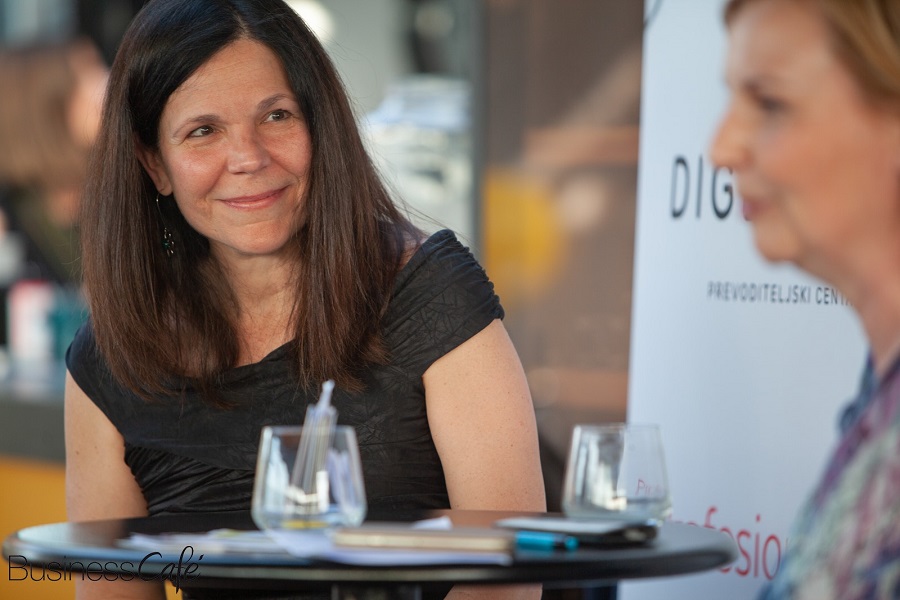
INTRO YOUR BUSINESS, what is it you do?
Together with my husband, we run The FORUM Zagreb Congress Centre which is located in the economic and entrepreneur heart of Zagreb, the Green Gold business center. It has more than 1,560 m2 of modernly furnished space, with 9 multifunctional and dimensionally flexible conference rooms equipped with state-of-art technology, as well as with quality and customized support by our team.
2. Tell us about some of the differences in your expectations of running a business in Croatia and the reality.
a. In Latin America the ROI is much faster, everything is faster – your daily routine is a whirlpool… So we expected the ROI a little bit earlier, but in Europe things are a little bit slower.
b. The laws and rules concerning some details of our business (for example, that we couldn’t have long cocktail tables in the same space with banket tables!) were a surprise for us, at the beginning (in Croatia).
c. And, of course, the taxes and other services (for example, the utility charges “komunalna naknada”) were much higher than we expected.
3. What (if any) bureaucratical issues have you encountered and how did you overcome them (i.e. any advice to the would-be entrepreneur?)
Congress or business centres are not categorized in Croatian laws, so we received the pleasant visit of an “inspector” and we were fined as soon as we opened. We had our lawyer and our accountant, who couldn’t help us avoiding the fine. So we just redefined our business and became a travel agency – because in Croatian laws only travel agencies appear as event organizers.
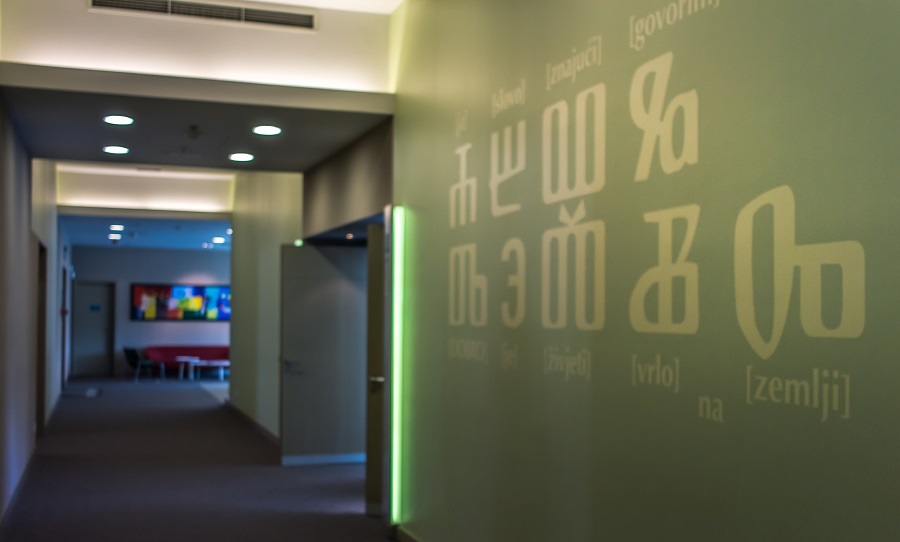
4. How is your product or business perceived in the Croatian market?
It’s perceived as a quality service, executed by a quality staff : ) The event industry in Croatia has developed in a very professional way, specially business events. The offer is very large and good. We have loyal clients who have accompanied us from the very beginning, we really try to make them feel at home – that is, at office : )
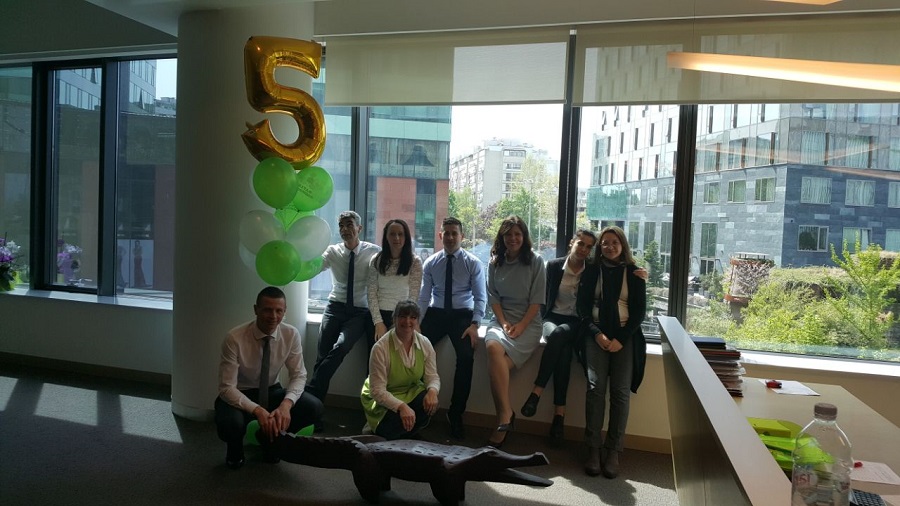
5. What were the opinions of your friends and community, were they supportive of your idea, or…?
Yes. Why not? “Sounds good, we’ll visit you…”

6. What are some of the greatest challenges you have faced in business in Croatia?
Adapting to another country and culture. We opened a congress (business) center in Zagreb, similar to the one we still have in Caracas (since 1996). We thought that being successful in Venezuela meant by default that we would succeed in Croatia. But knowing “everything” in South America was a double-edged sword in Europe, because people aren’t the same. In Venezuela, for example, everybody preferred rooms without windows, for their events. In Croatia it is completely the other way. But I guess that’s because in Venezuela we have 365 sunny days each year : ) In Venezuela, for example, the price is the price. In Croatia, as I was later told by a colleague from a travel agency, the price list is a reference and you must give discounts on the price – at least in our segment.

7. If you knew then, what you know now, would you have come?
Yes, I would do it again.
8. What are 3 things you love about Croatia?
a. Personal security – better than elsewhere : )
b. Healthy food and excellent wines! So many wine routes…
c. The youngest generations, very innovative – just three examples: Rimac automobile, Mrvoš smart benches and Croatian IT-phoria !
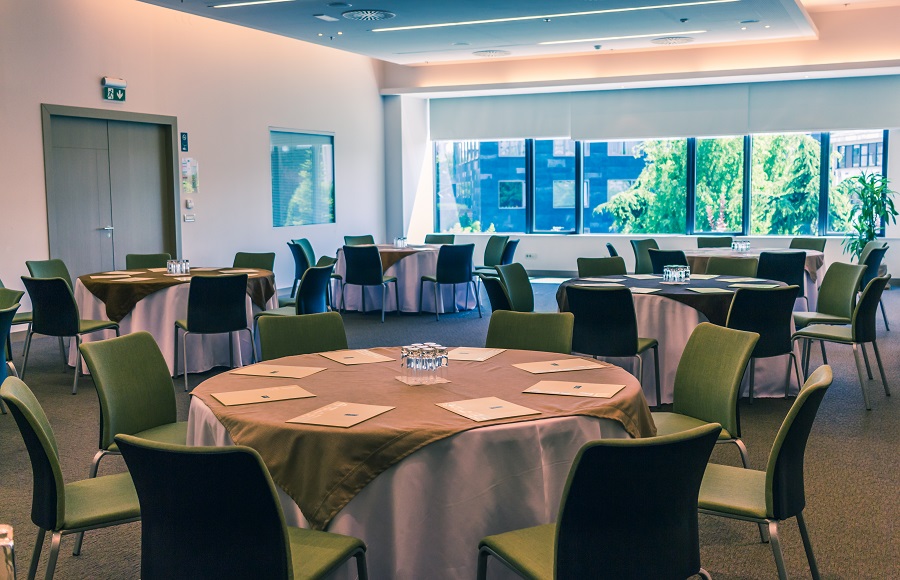
9. What are 3 things you would like to see improved in the business climate in Croatia?
a. Lower taxes and less regulations
b. A real and positive nation branding policy, all Croats included with enthusiasm
c. Government actions against seasonality – this is a real challenge. During 4+ months the coast needs a huge infrastructure and lots of people and, after that, it’s partially deserted. On the other hand, the capital is almost empty and sleeping during summer time (although that’s changing and improving every year).
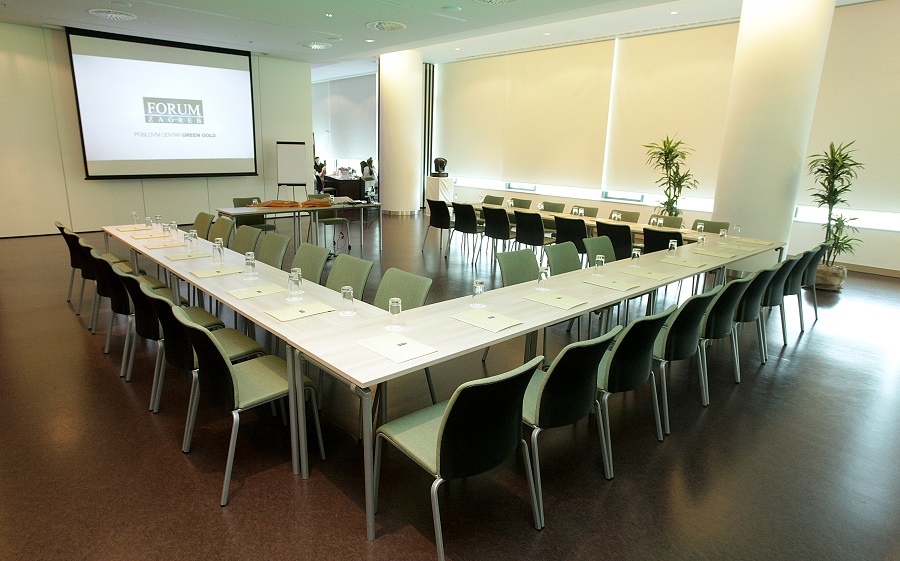
10. How is it working with Croatians in terms of a business mentality?
Our team is really special. Everybody likes the work we do, tries to do it as best as possible. Our colleagues are nice, hard workers, consider the company as their own and is always searching what could be improved. The only thing is the “sve znam” (I know everything) attitude : )
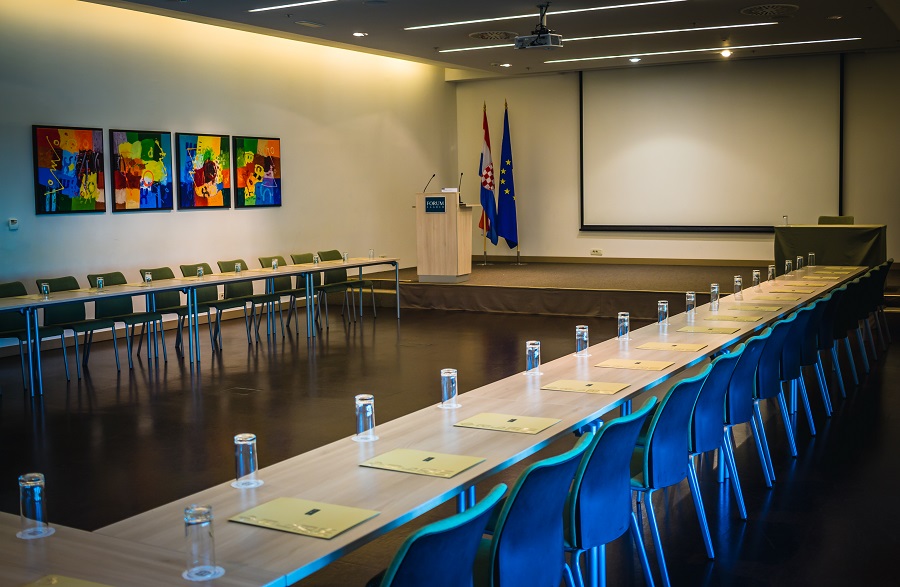
11. Advice for foreign entrepreneurs thinking of coming to Croatia?
Live in Croatia for a while. Work in a Croatian company for a while – before starting your own business. Don’t forget the due-diligence, including extensive market research (see Starbucks, for example). If your business is related to tourism, bingo – you’re on the right path!

You can learn more about FORUM Zagreb on the official website.
To learn more about the foreign entrepreneurs trying to make it in The Beautiful Croatia, check out the heroes we have covered already.
Are you a foreign entrepreneur trying to make it work in Croatia and would like to promote your story? Contact us on This email address is being protected from spambots. You need JavaScript enabled to view it.
